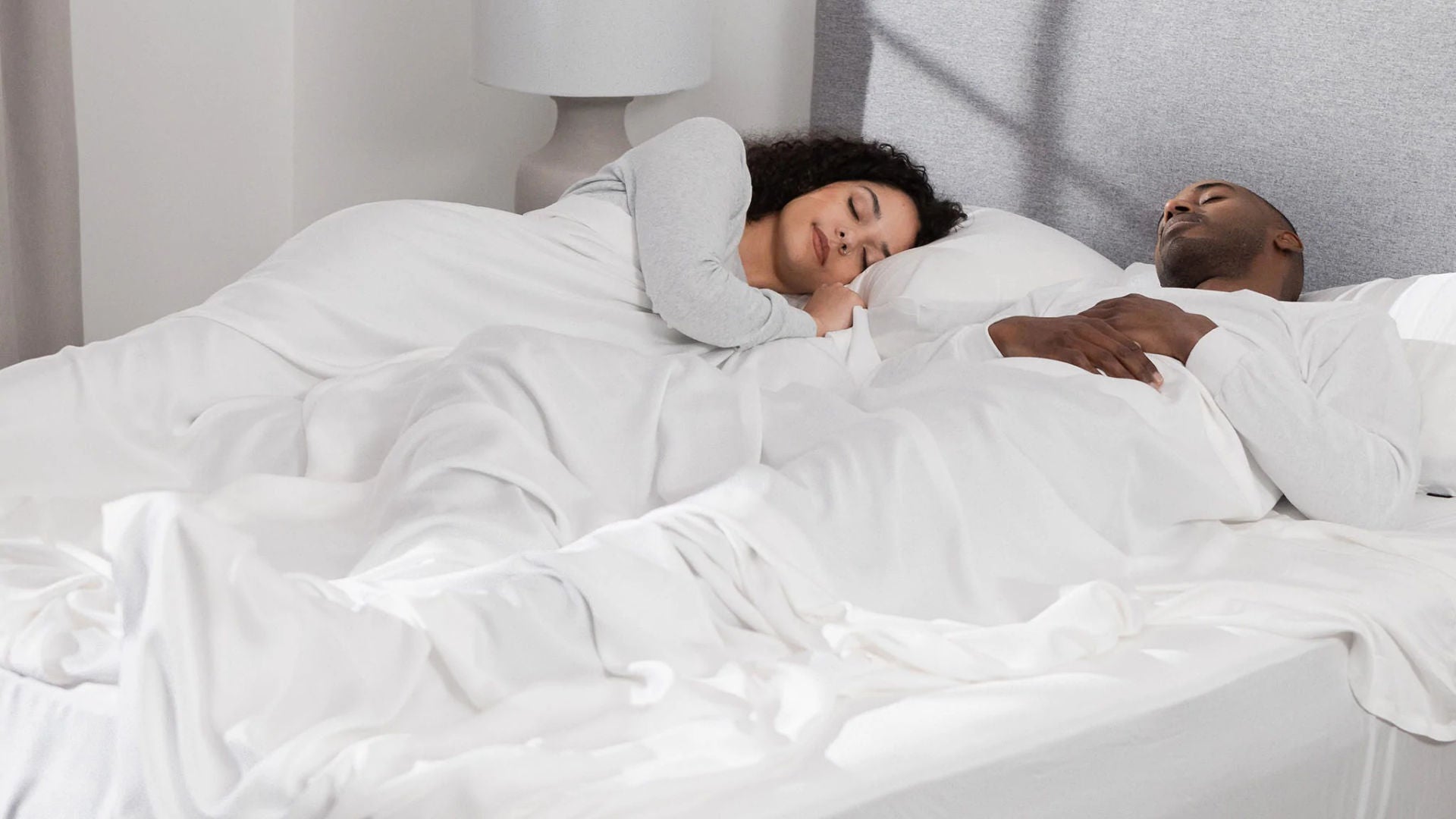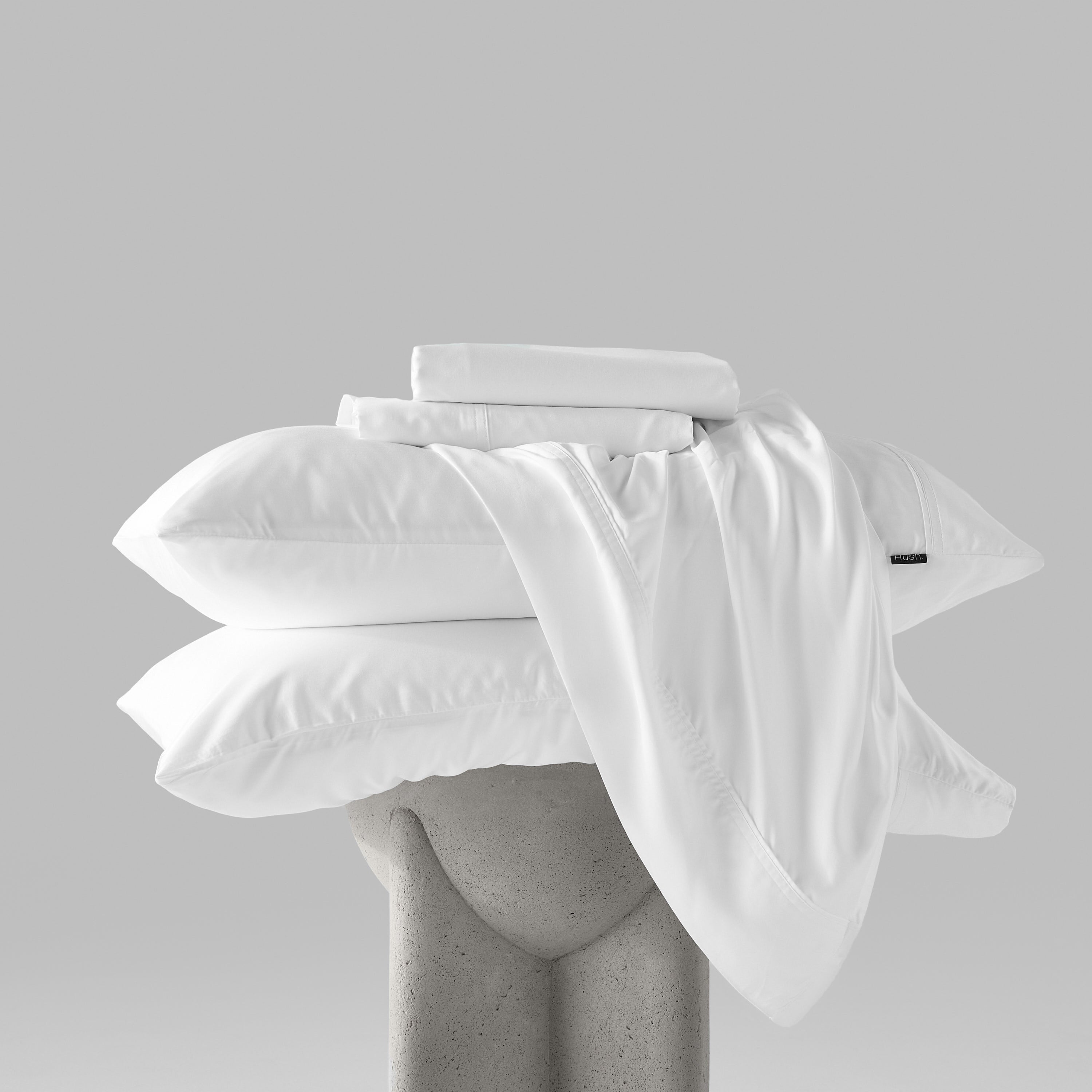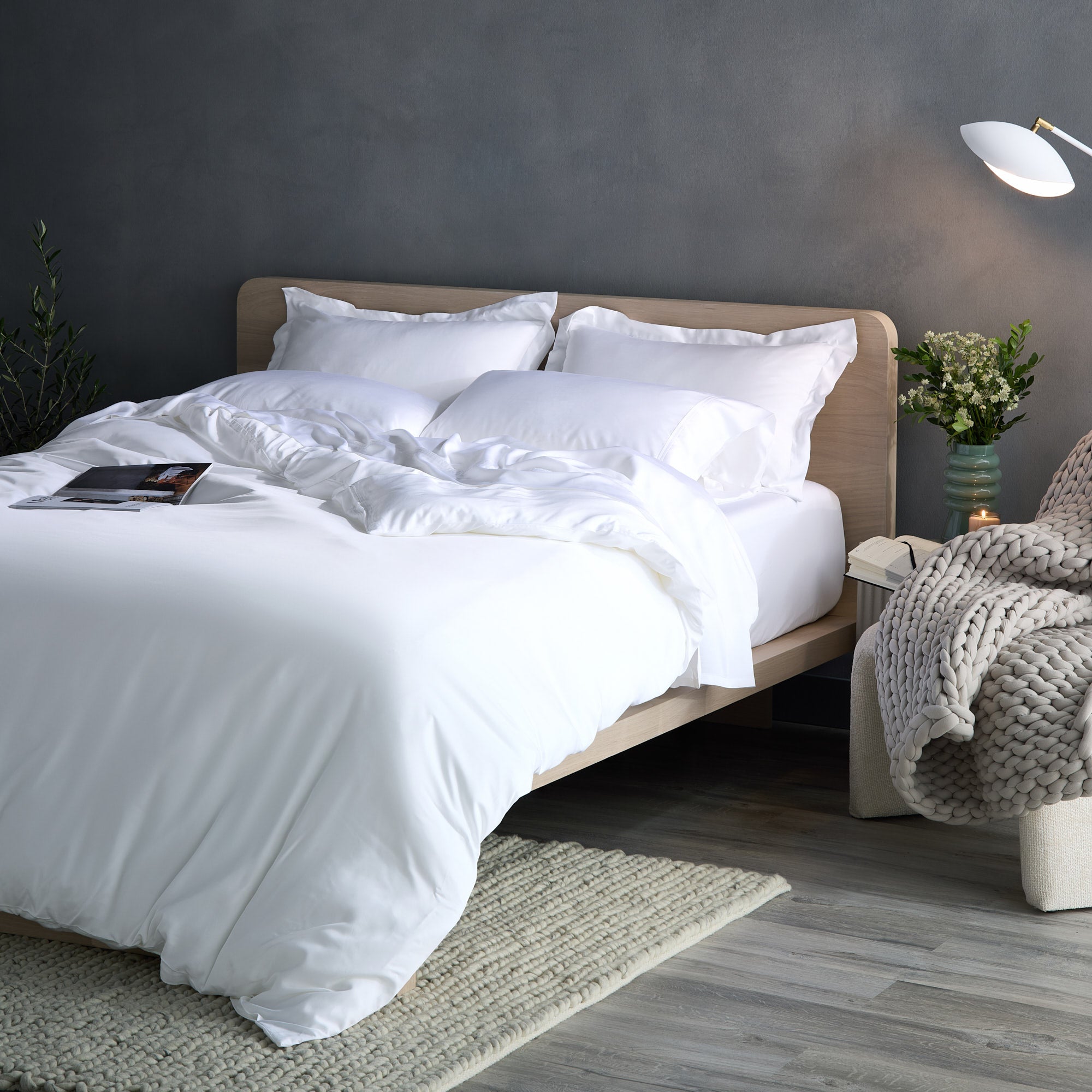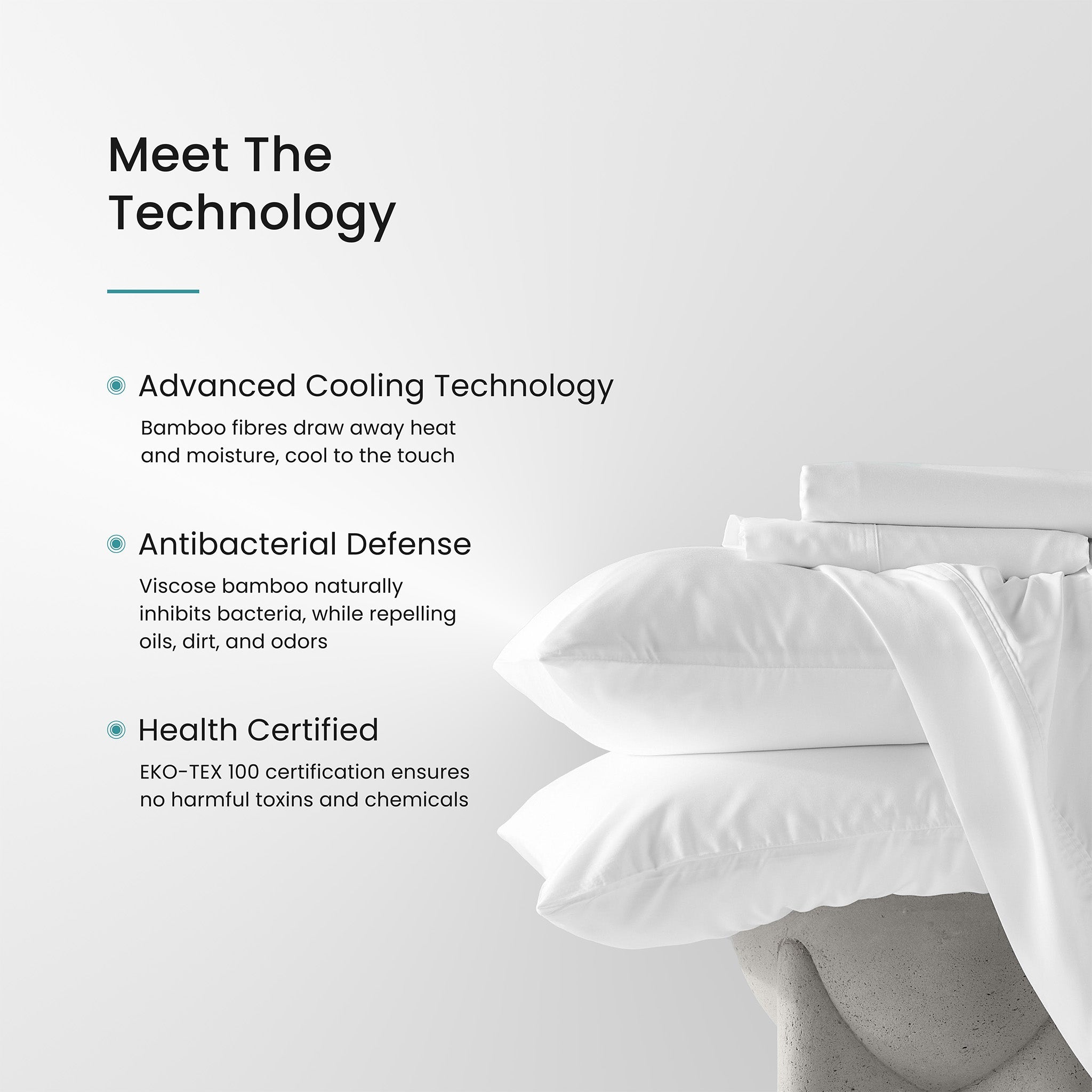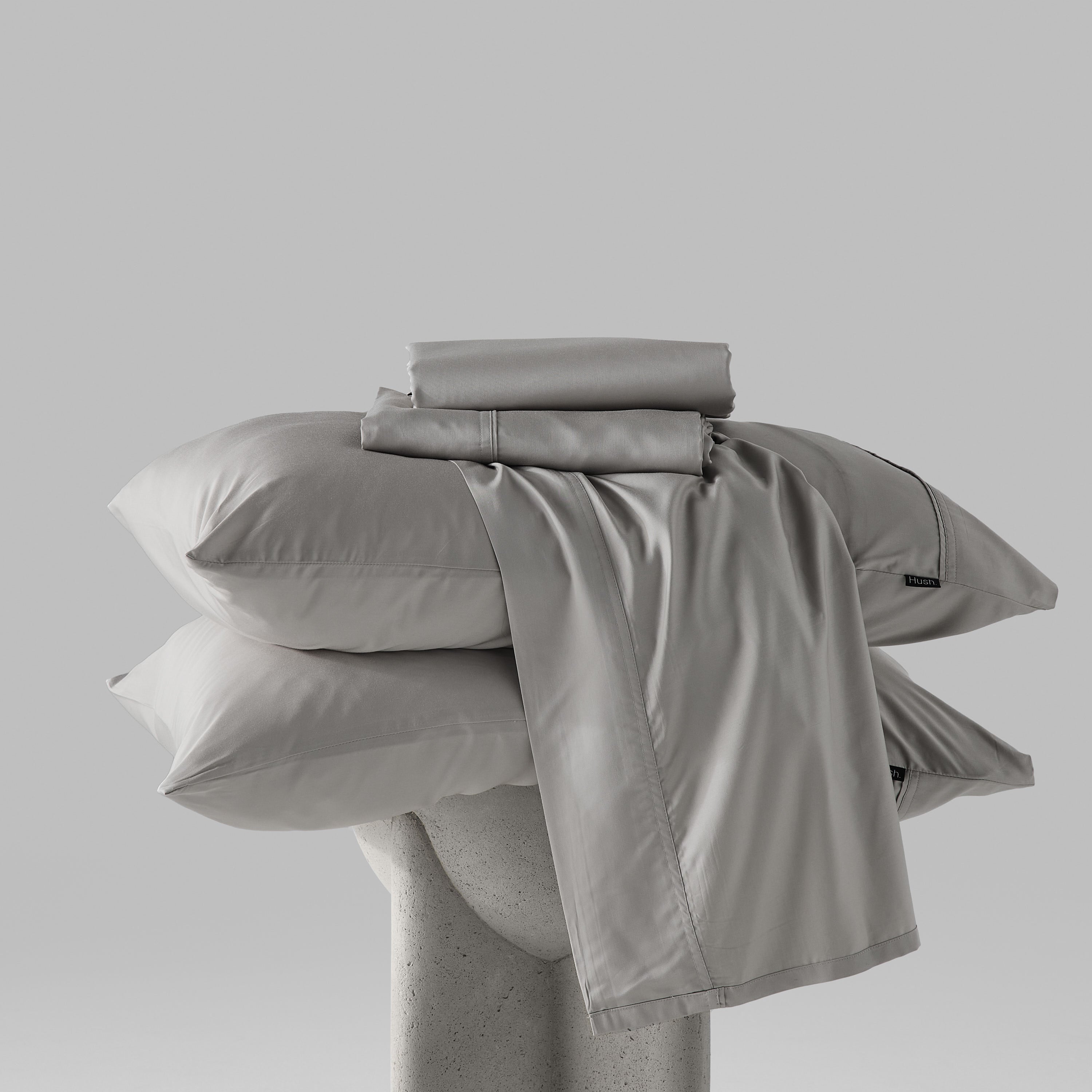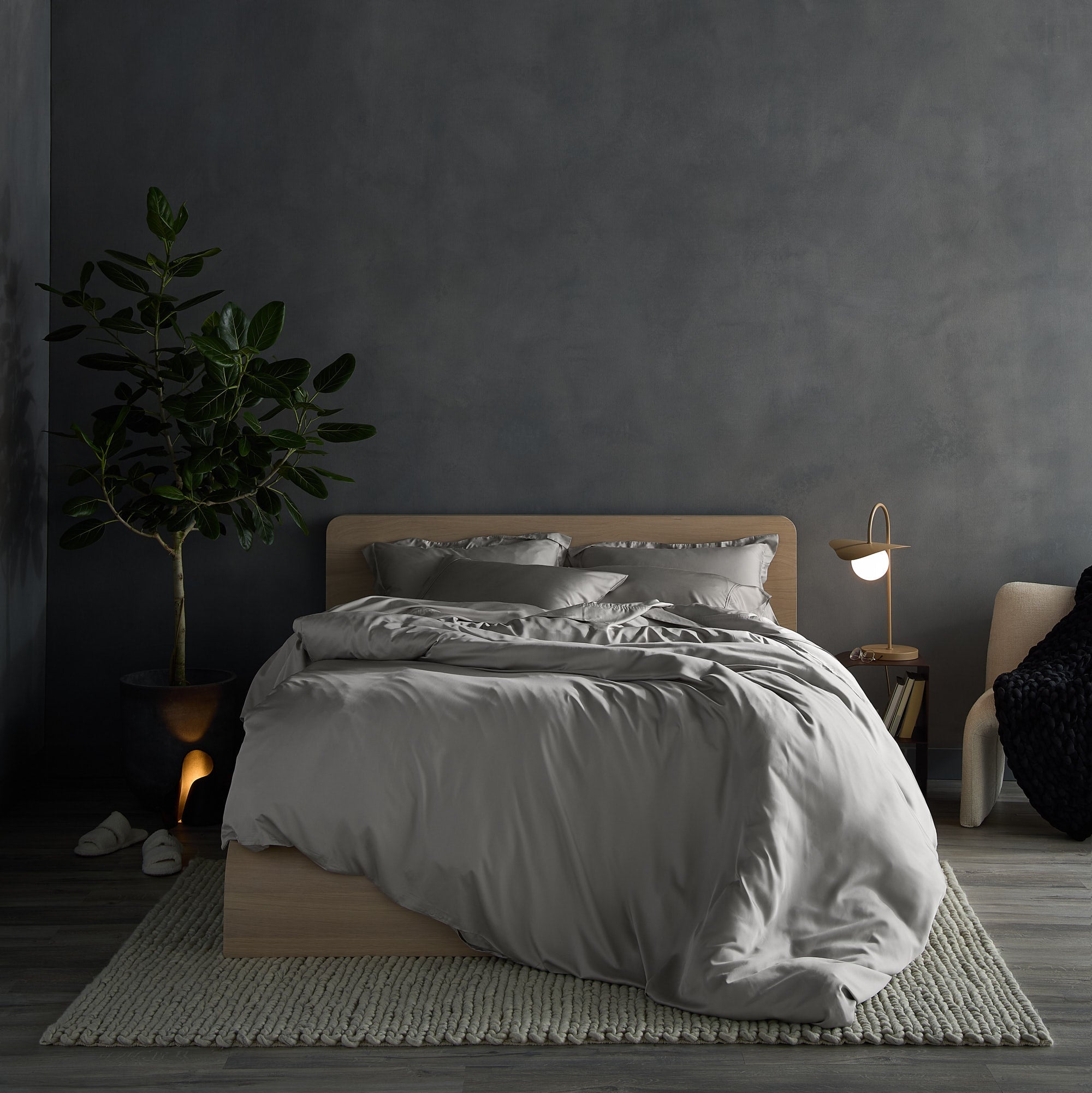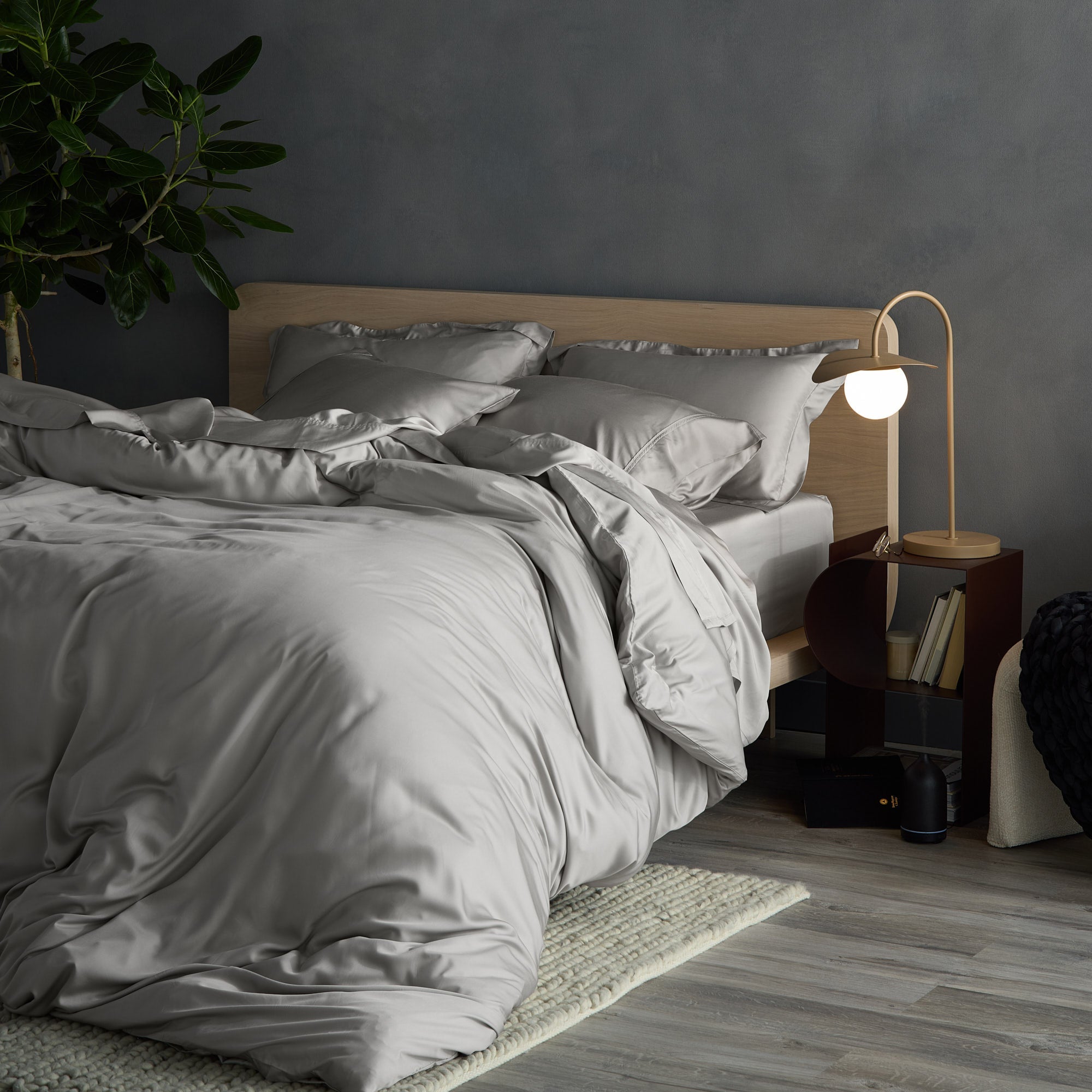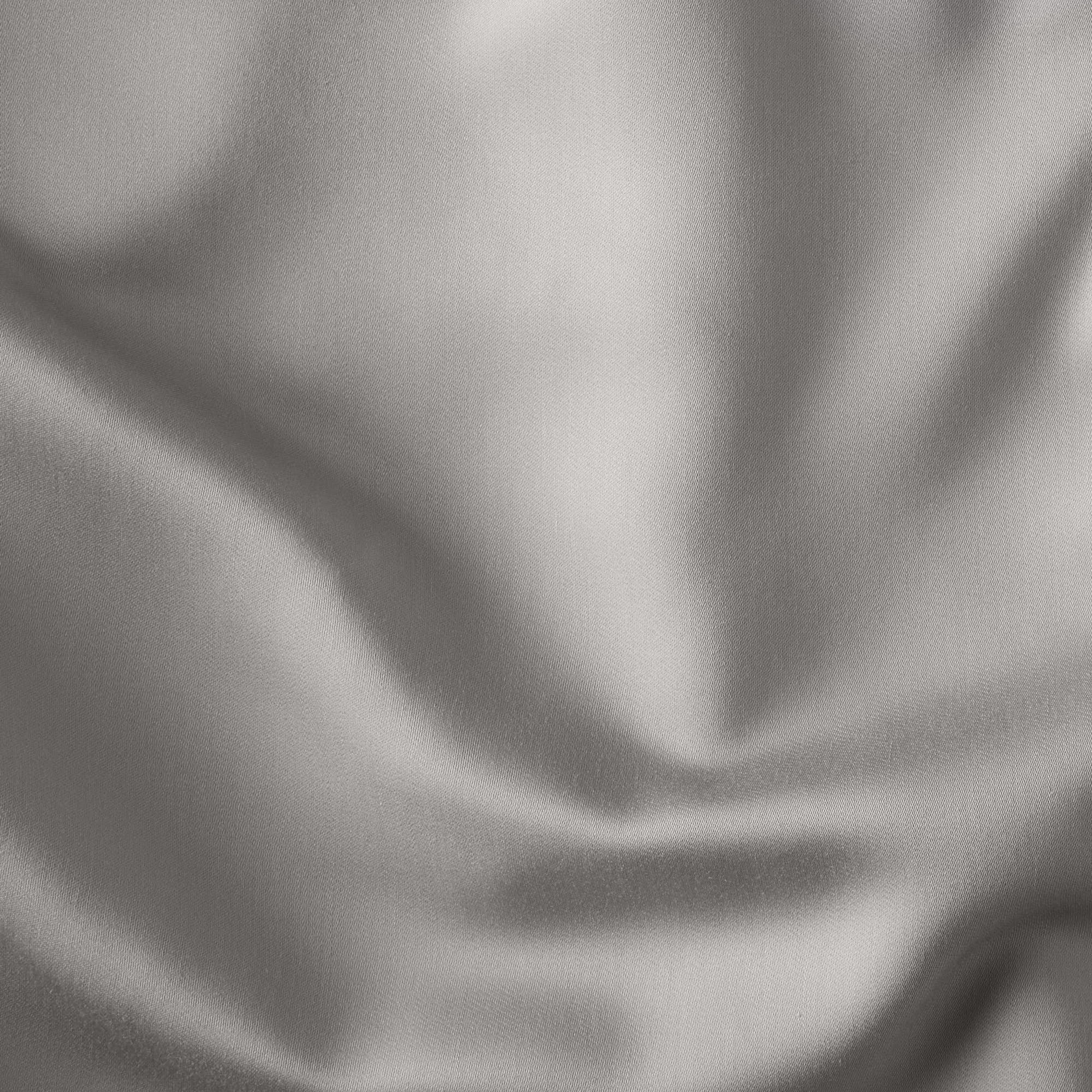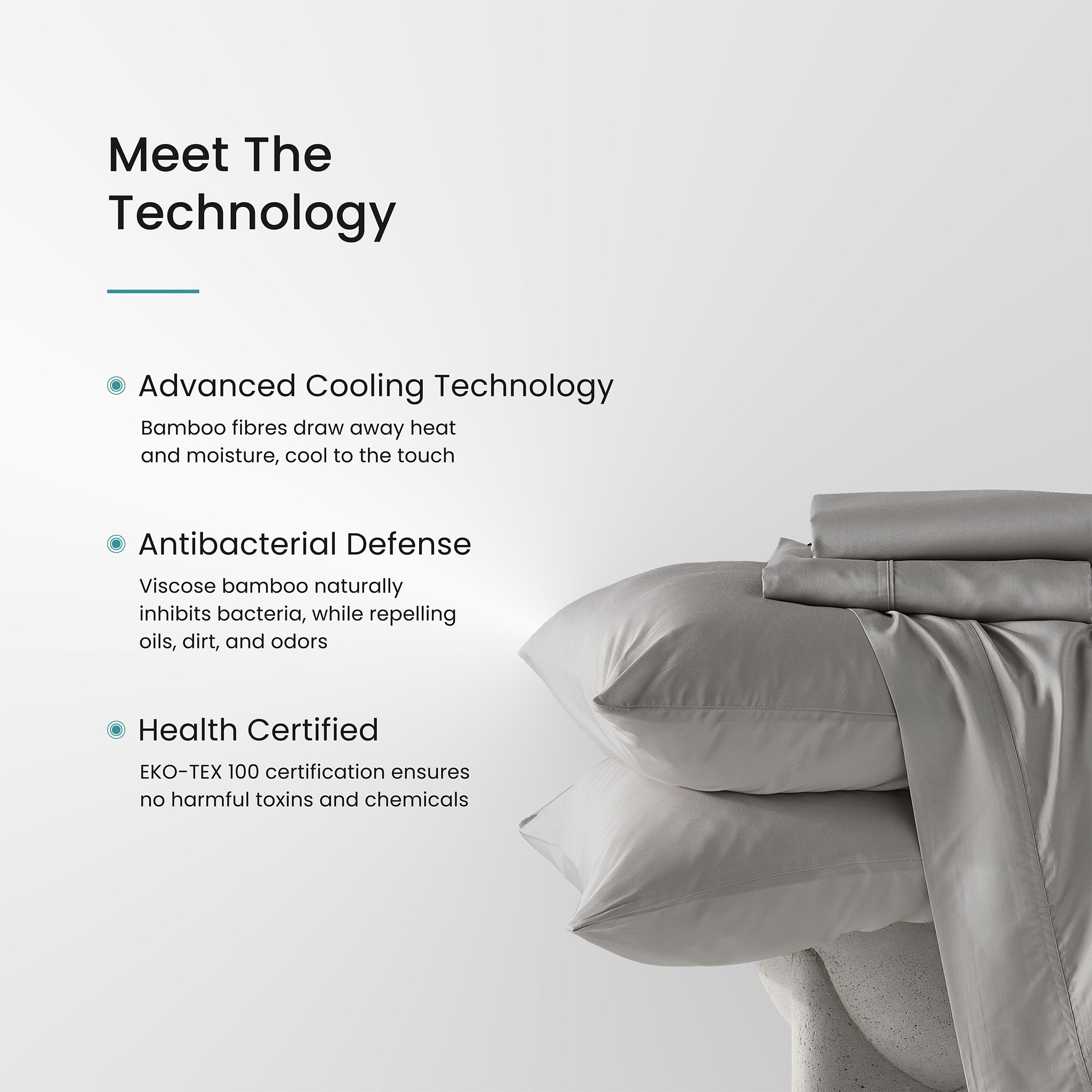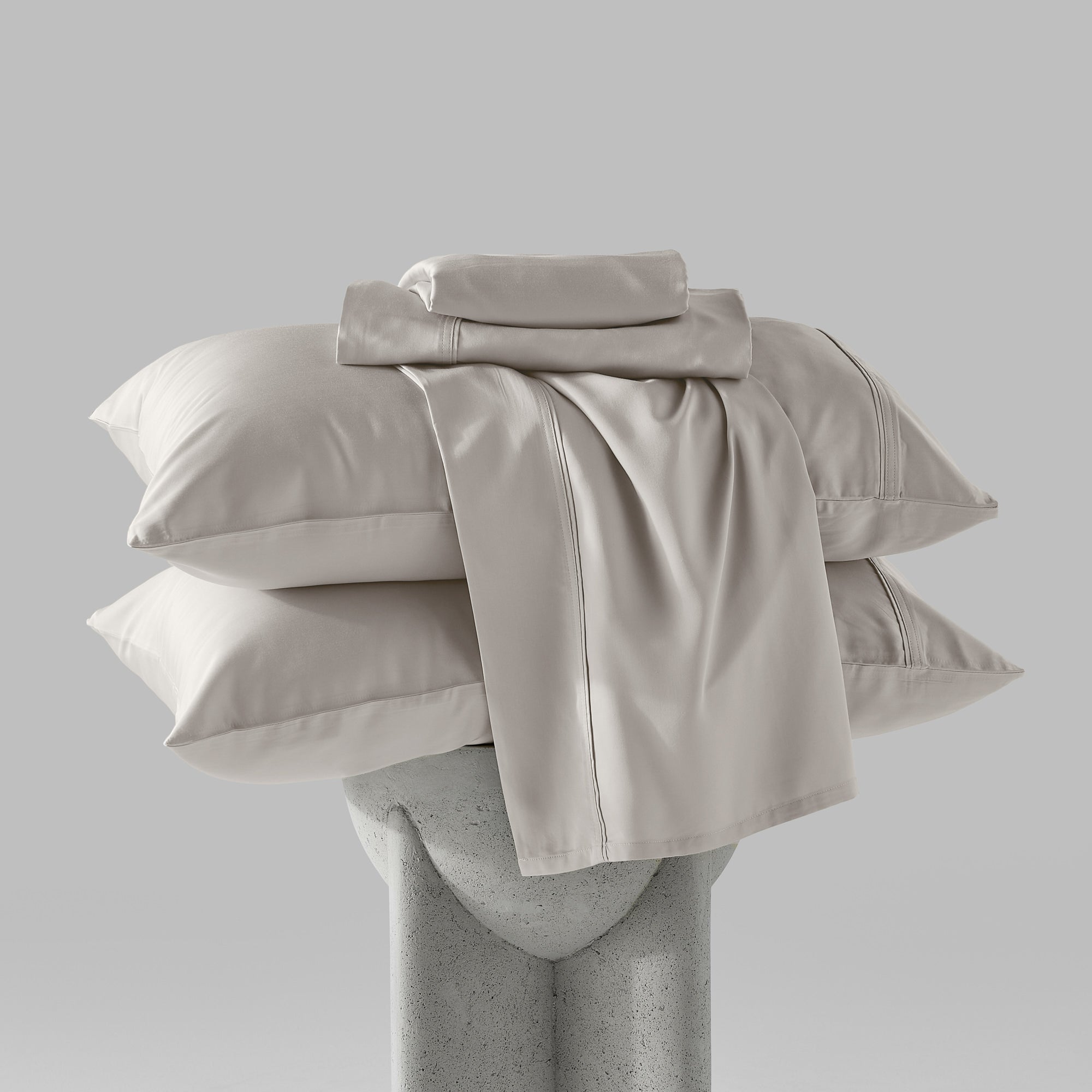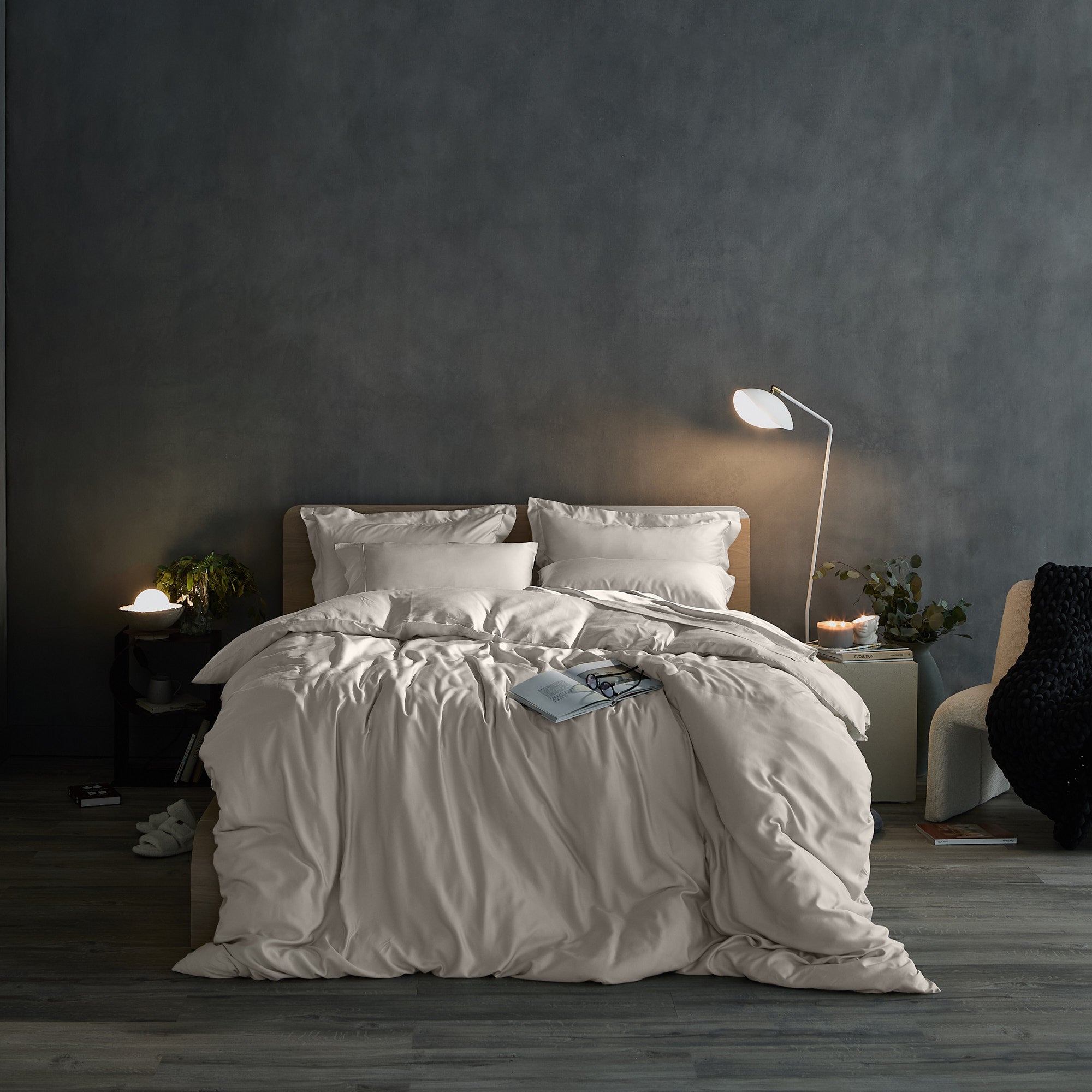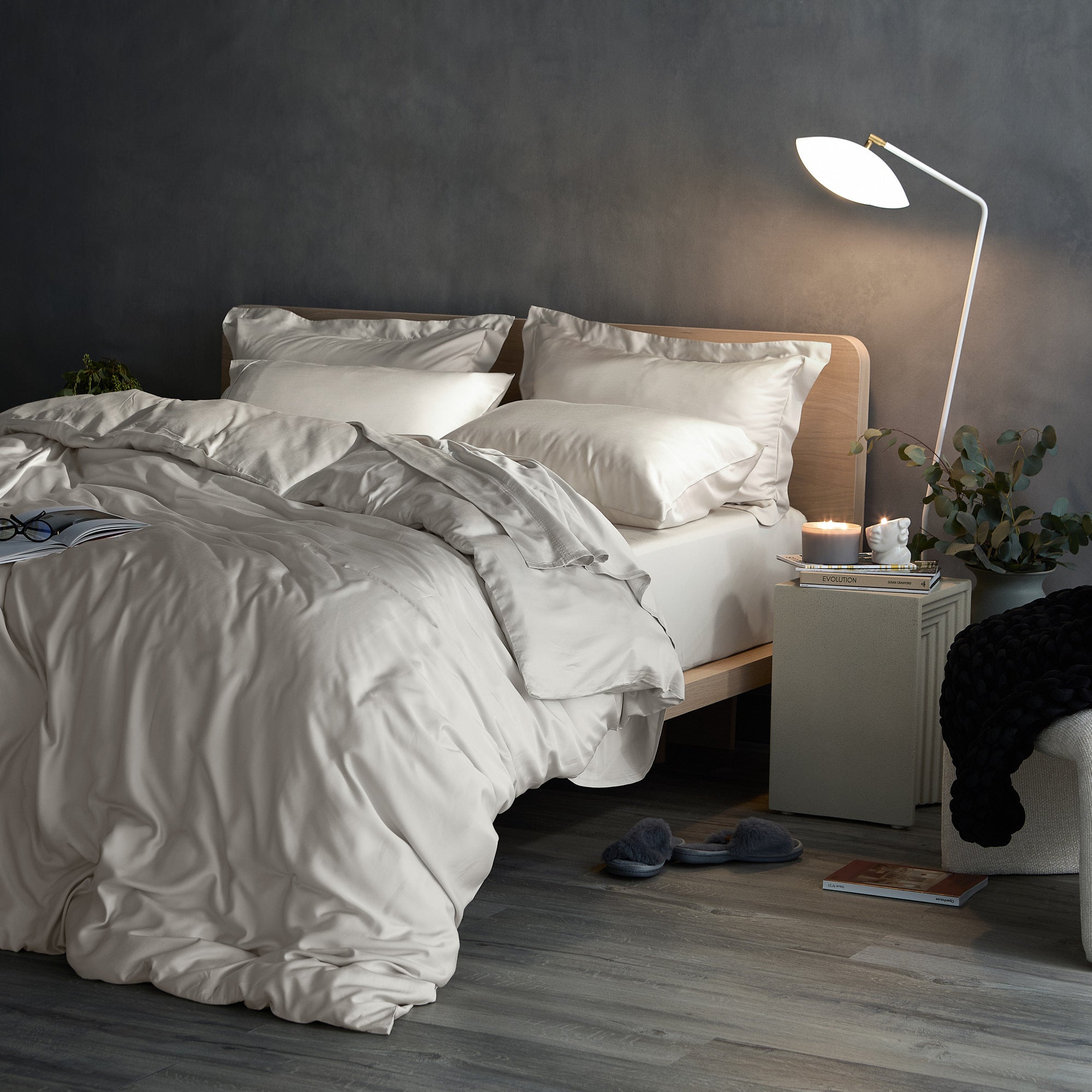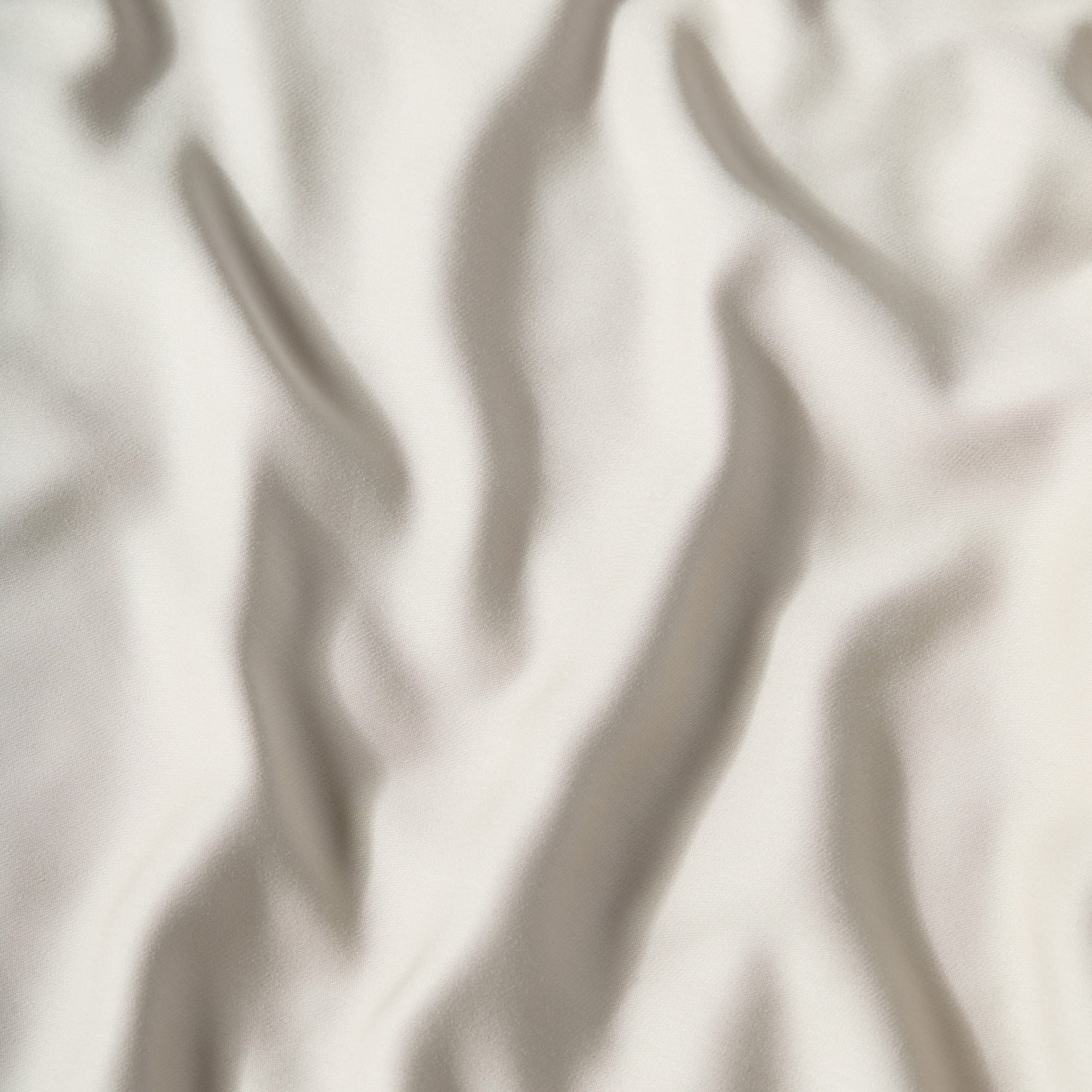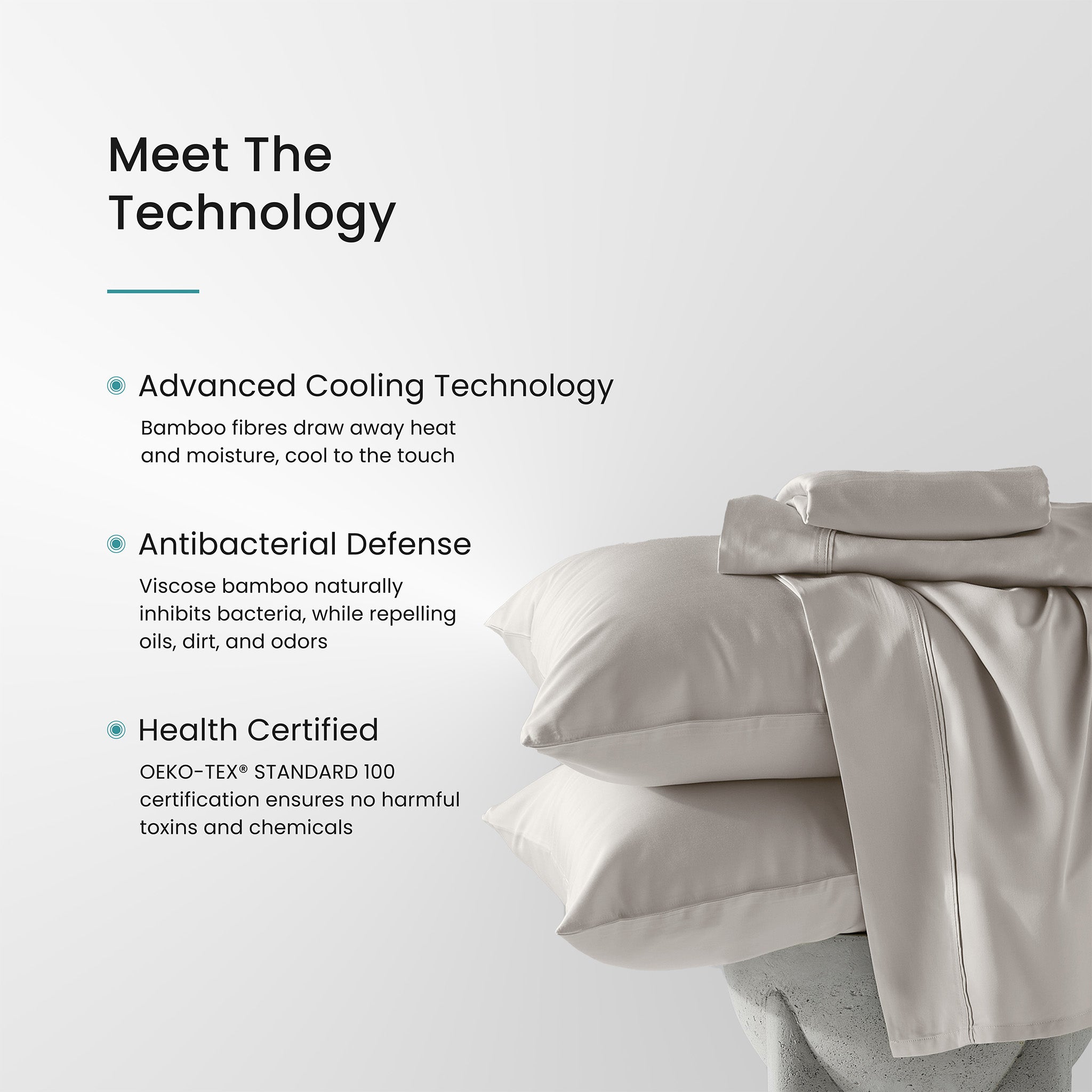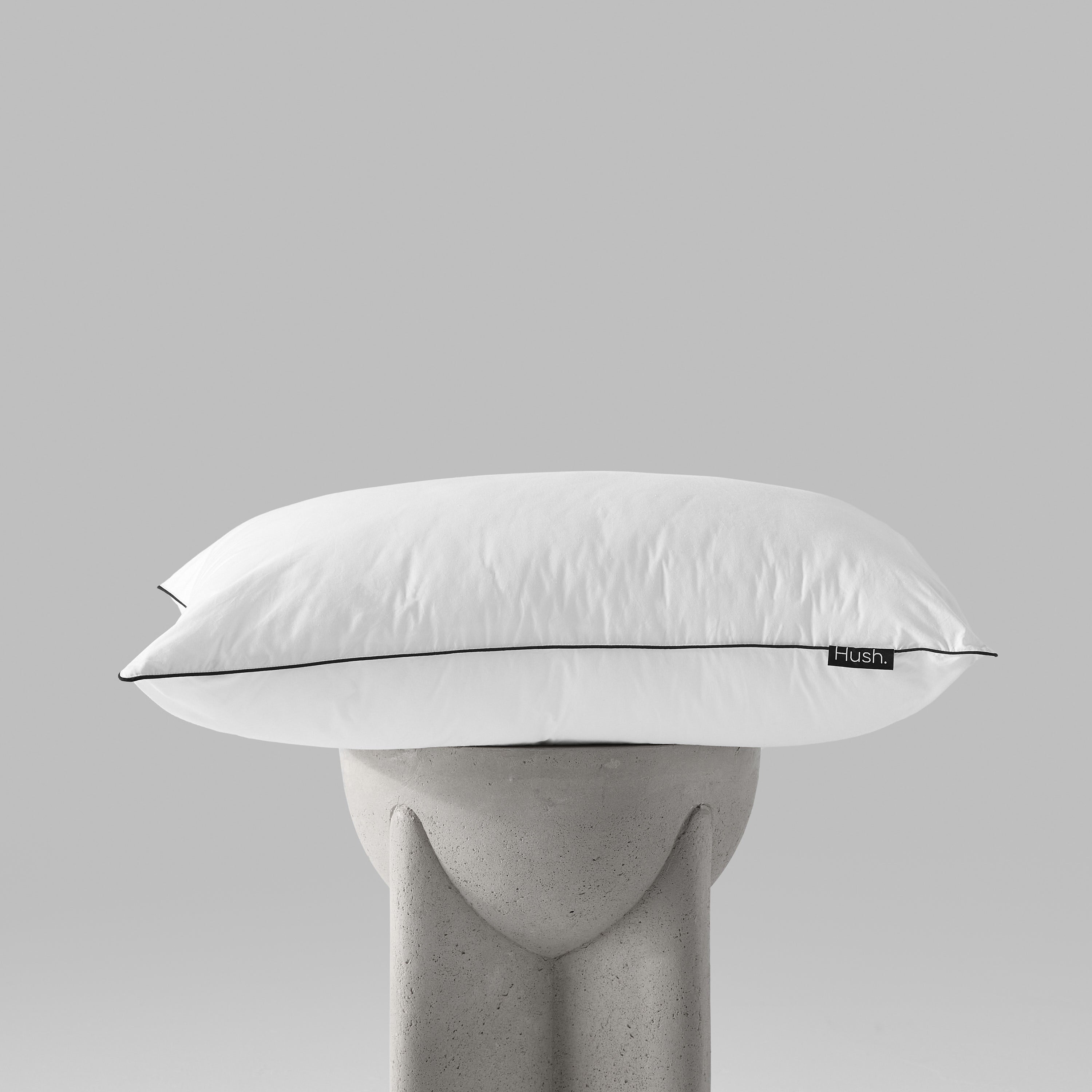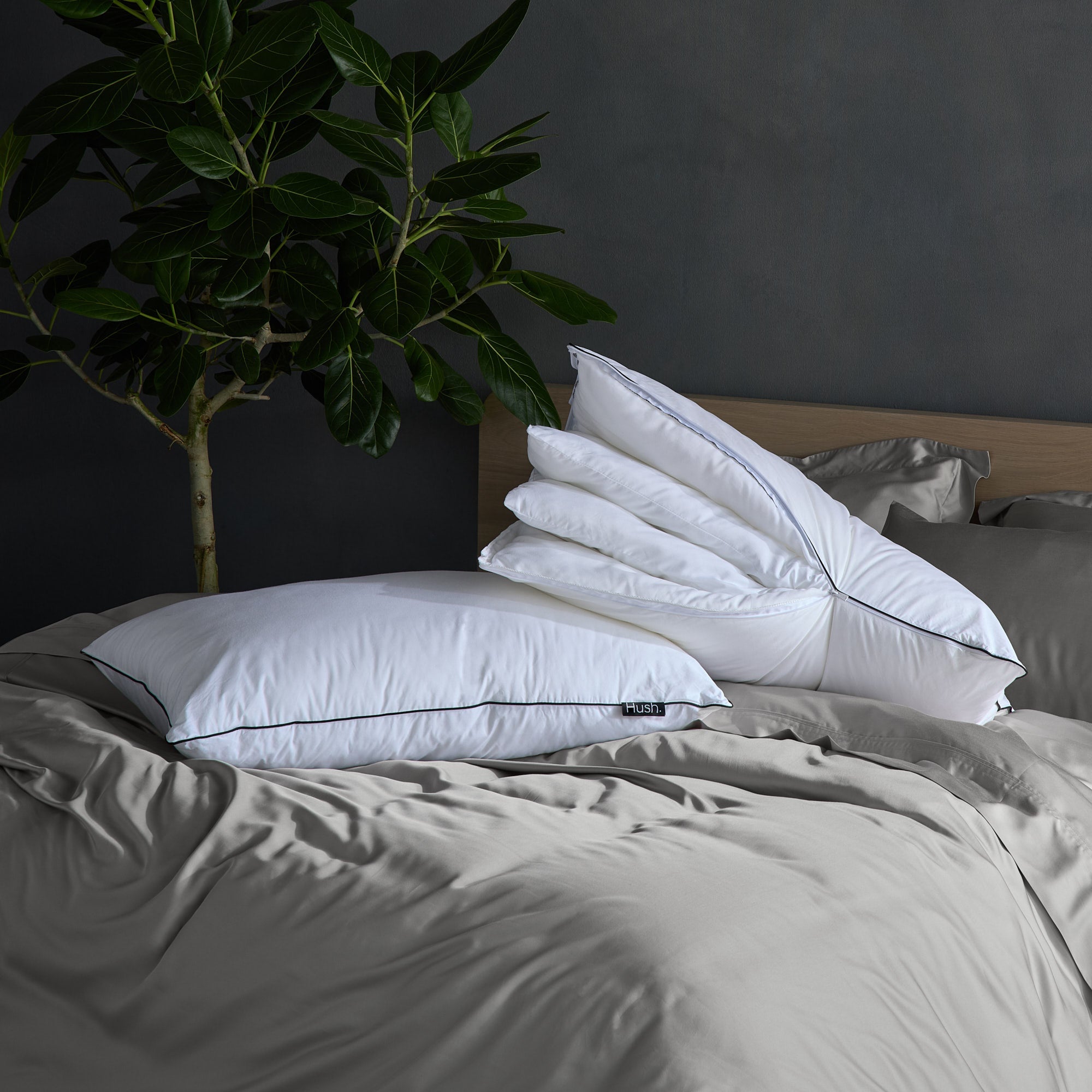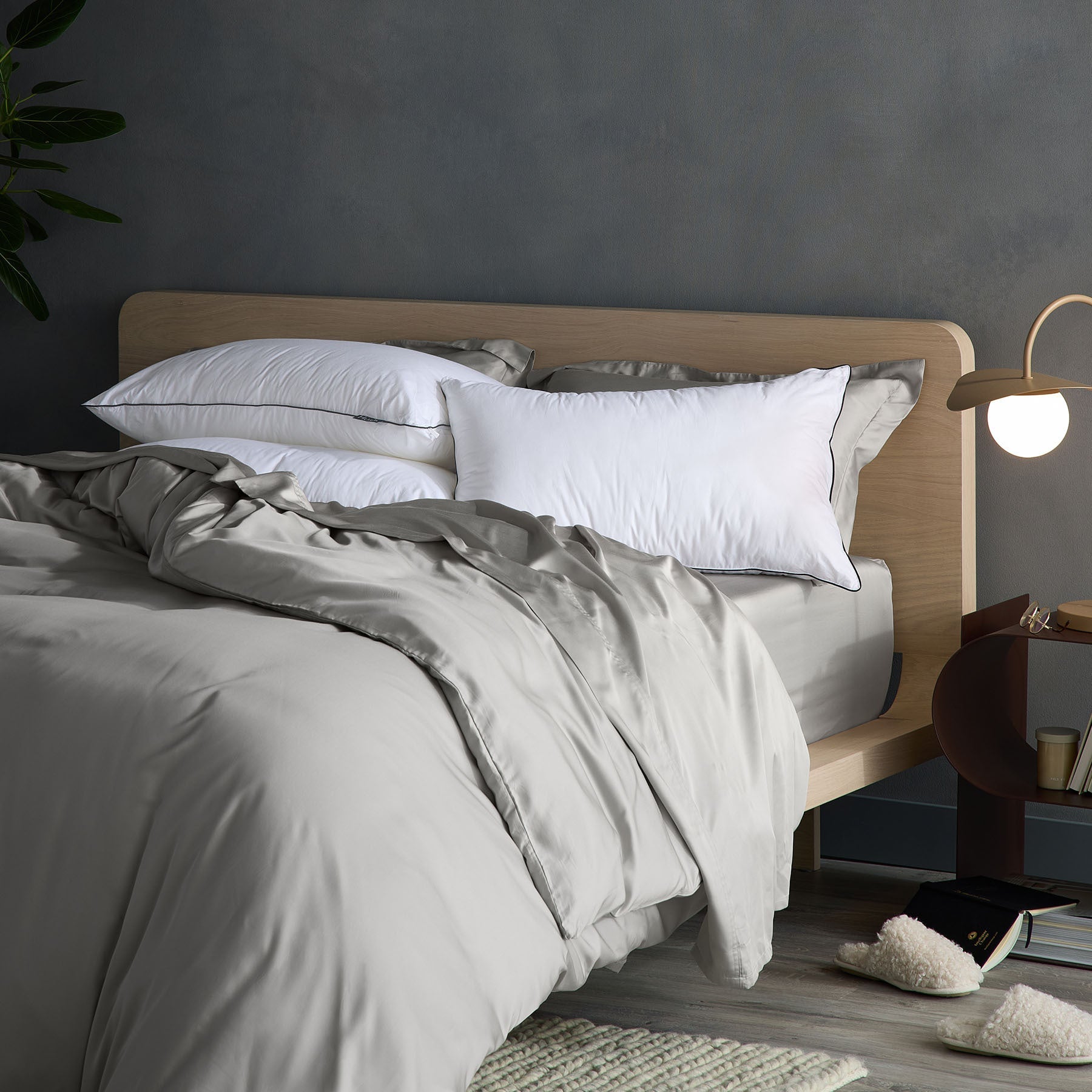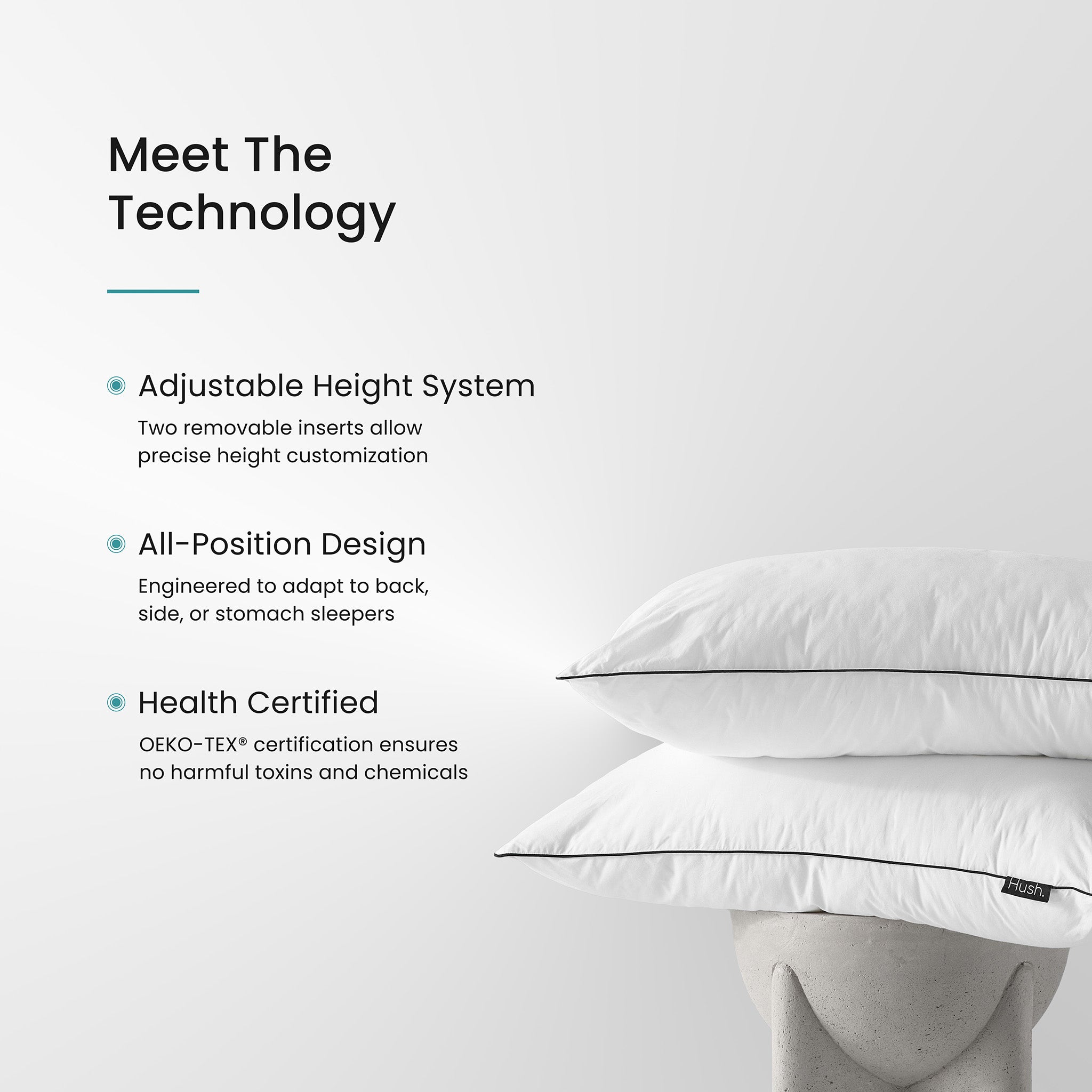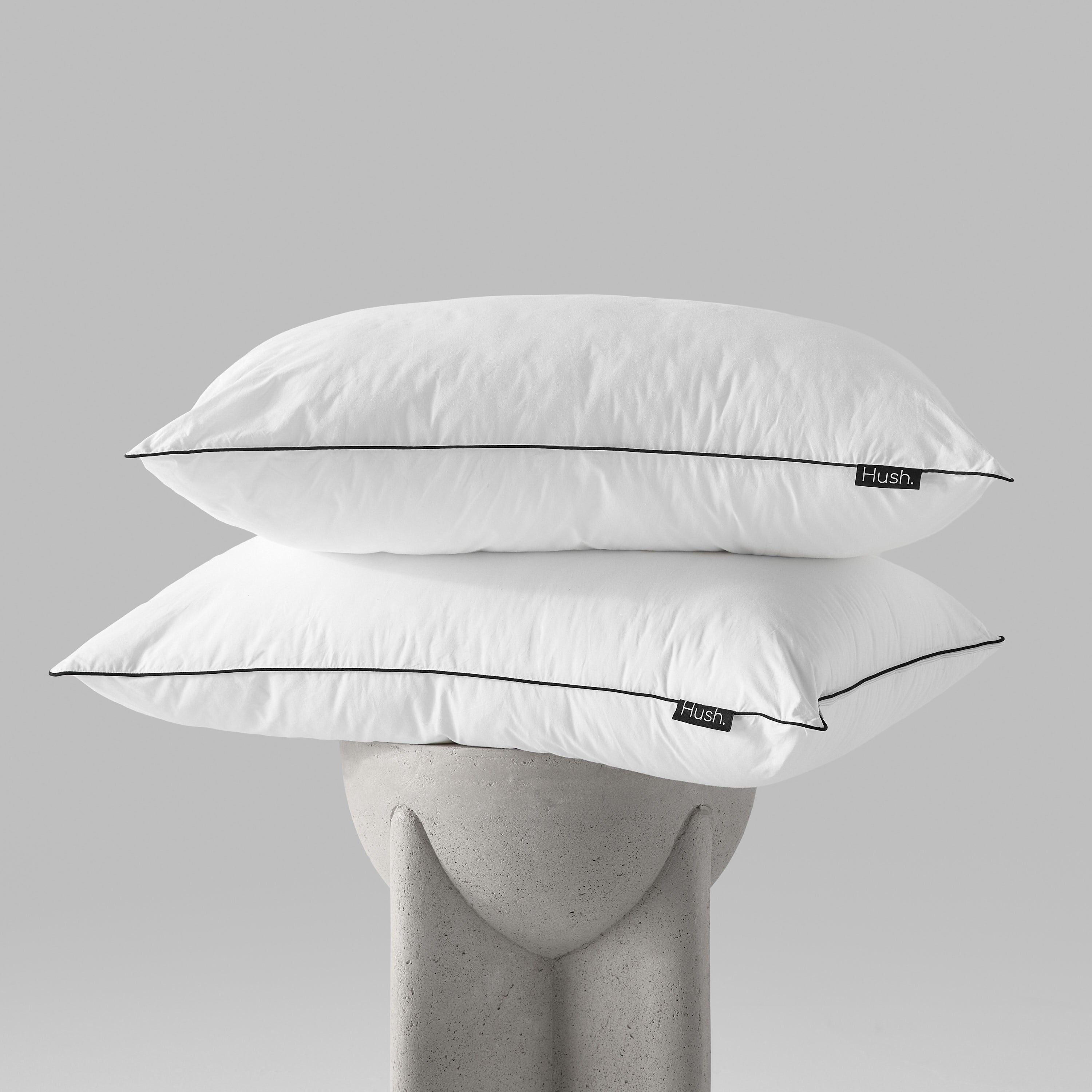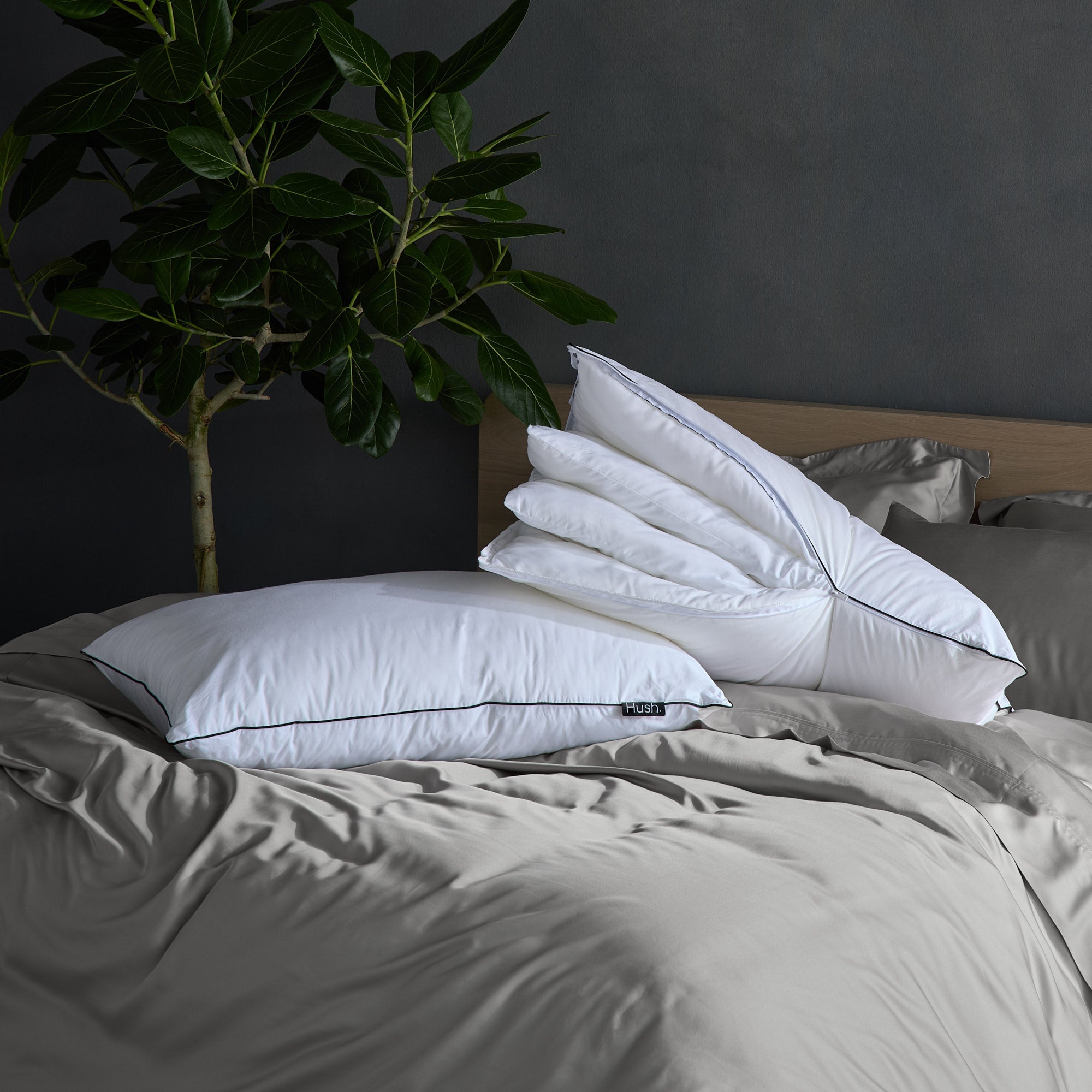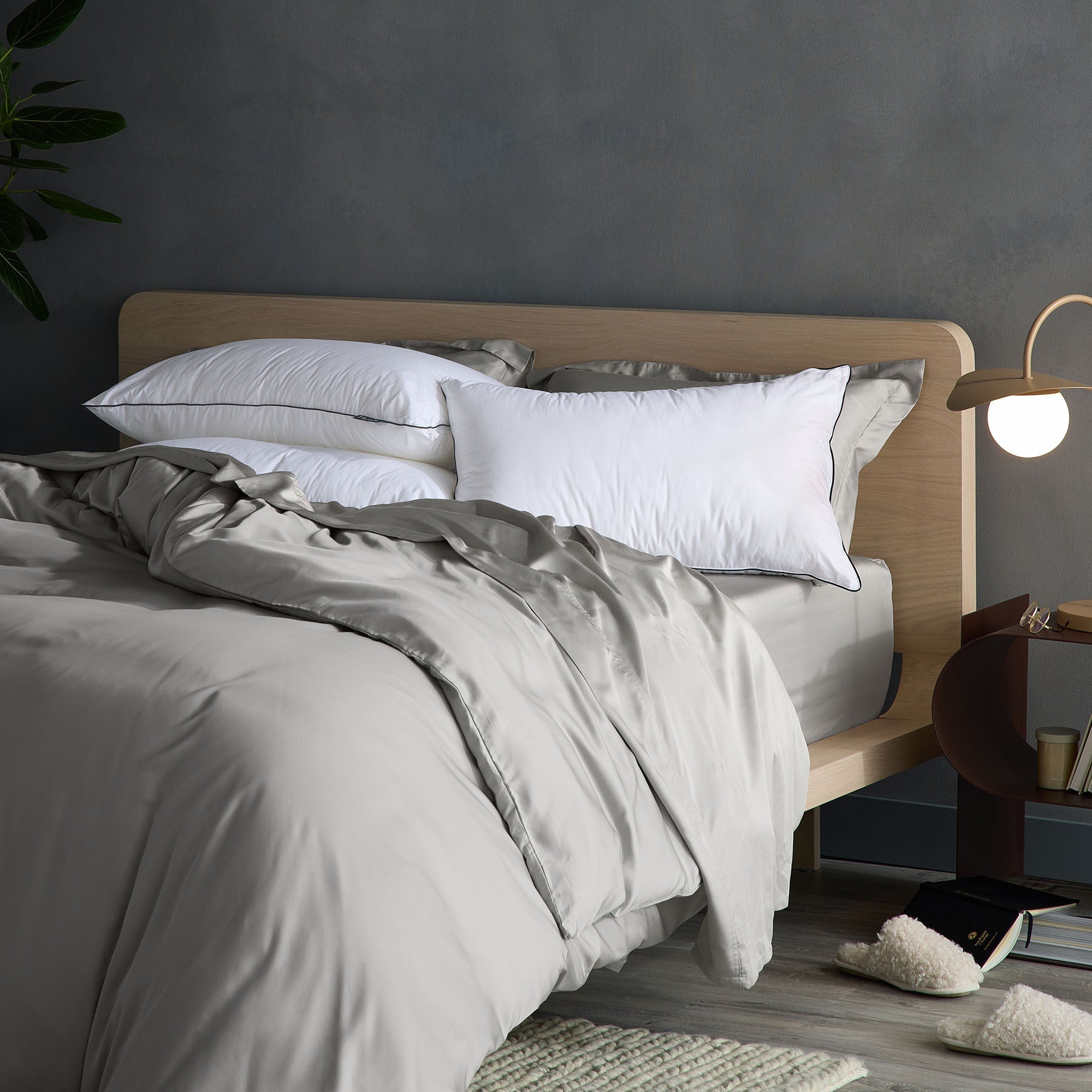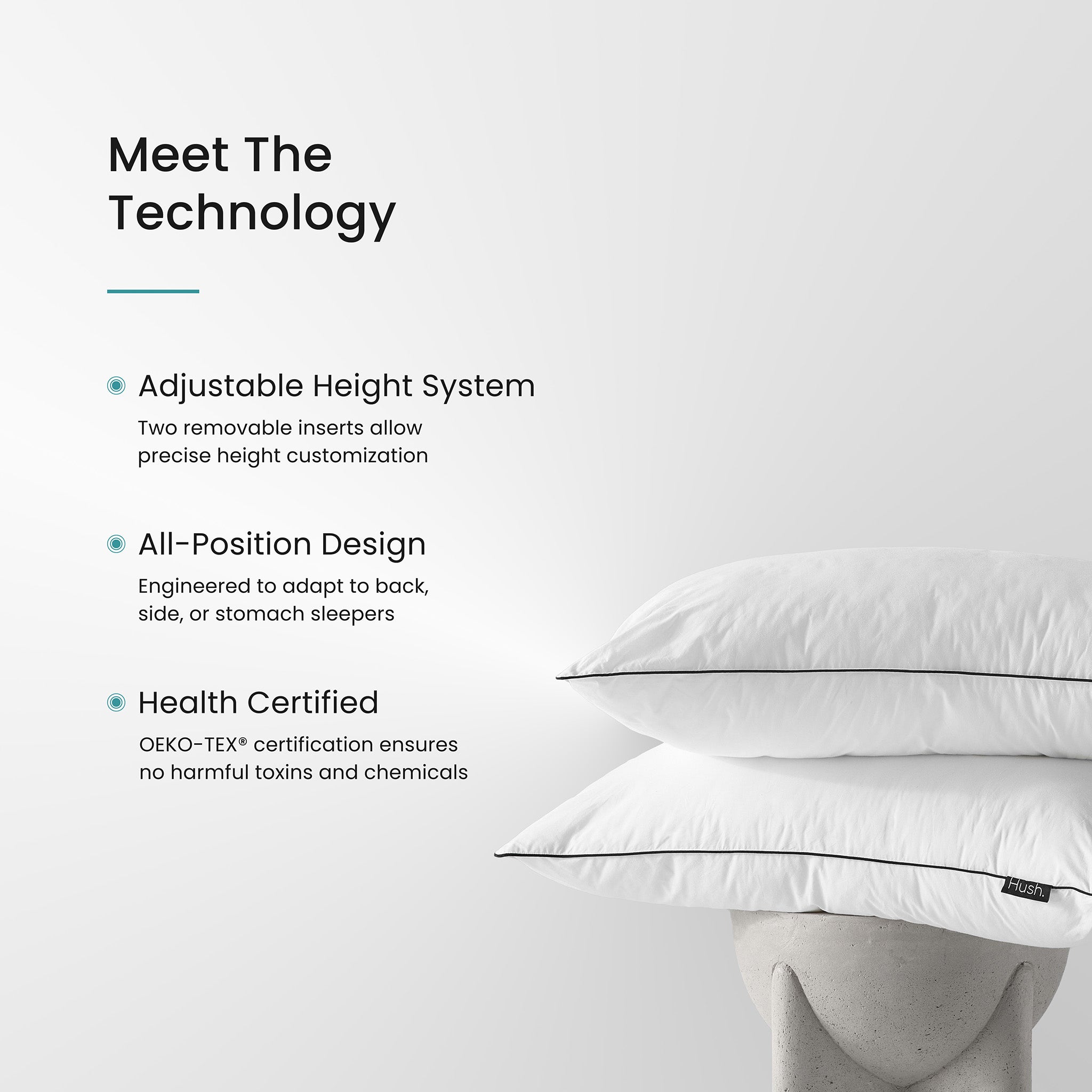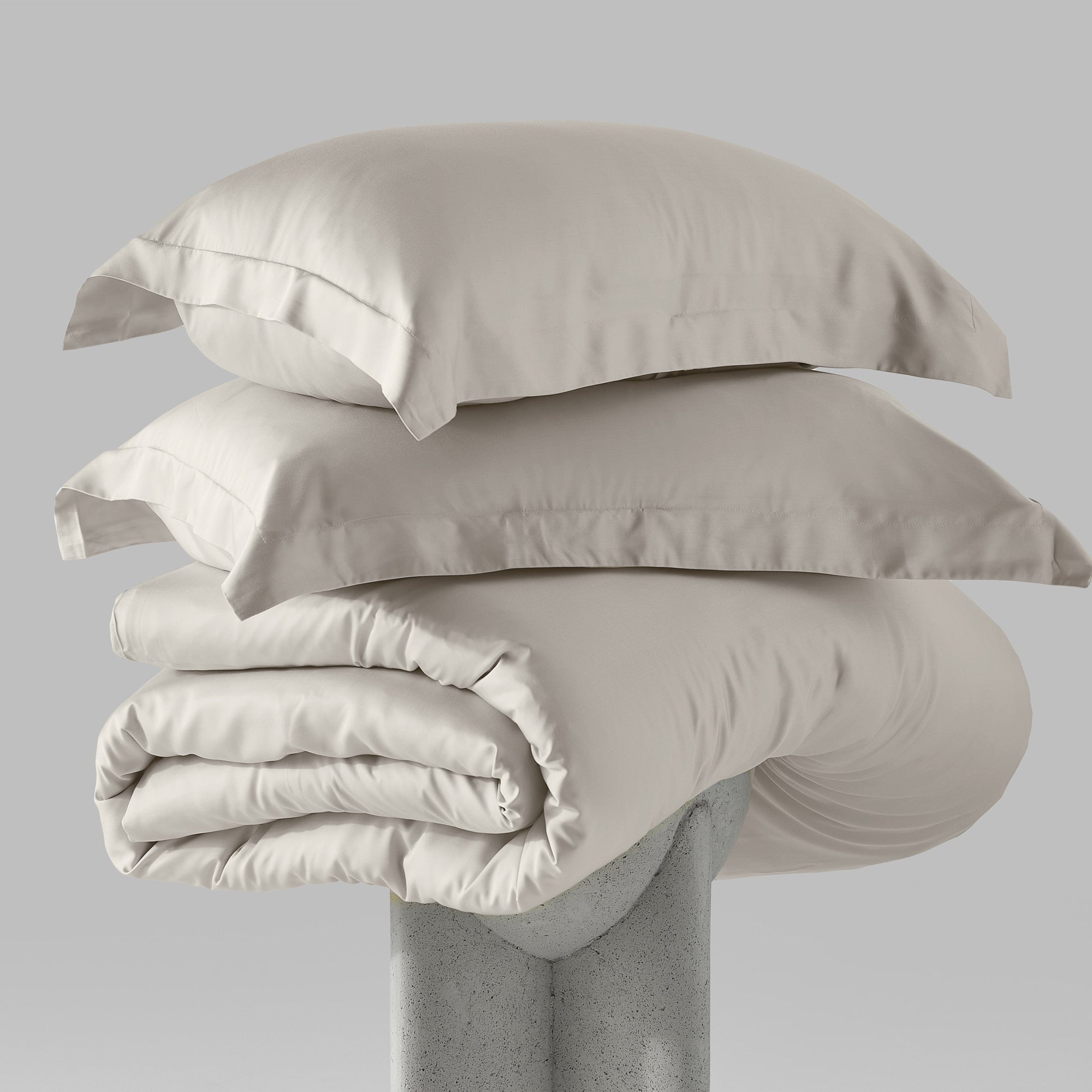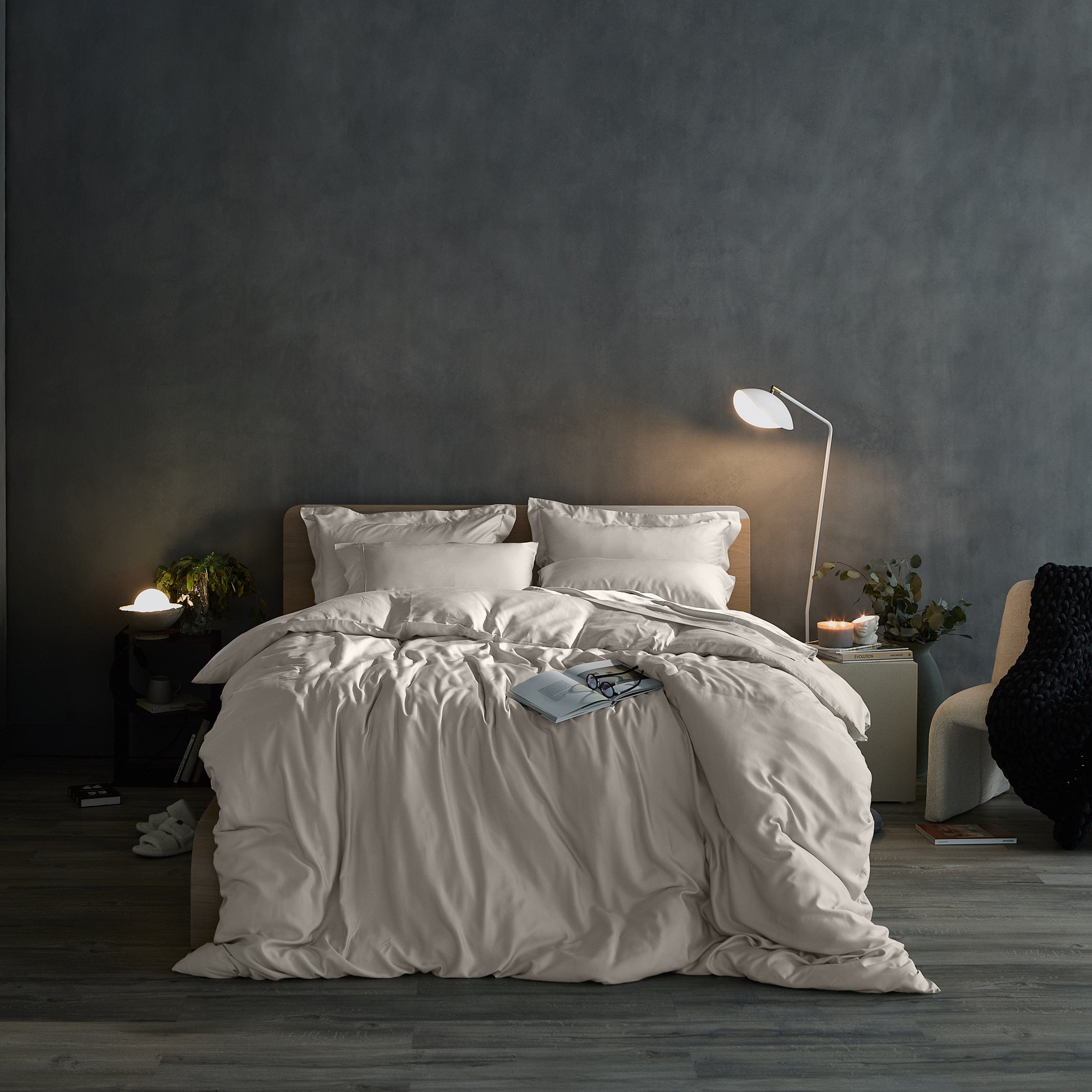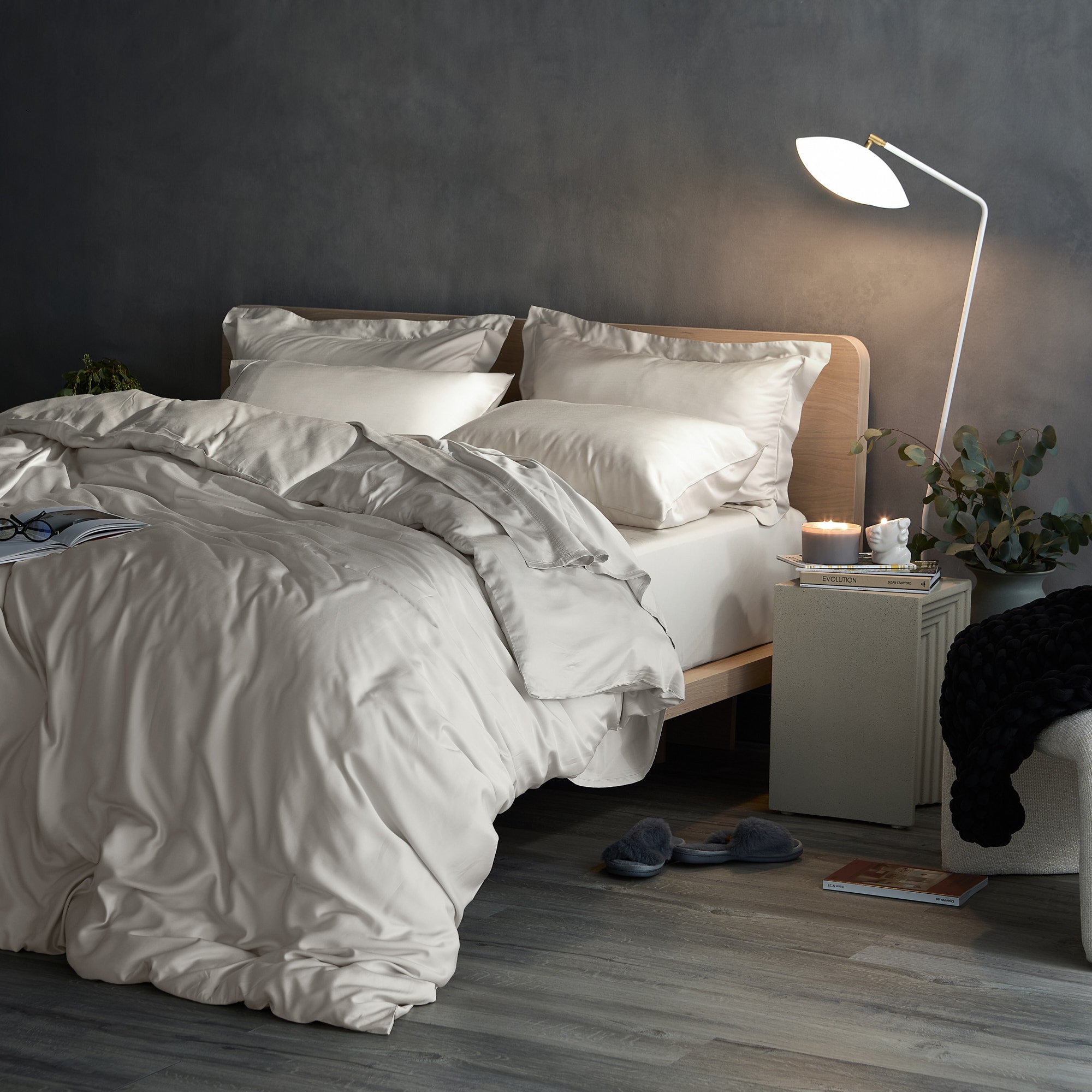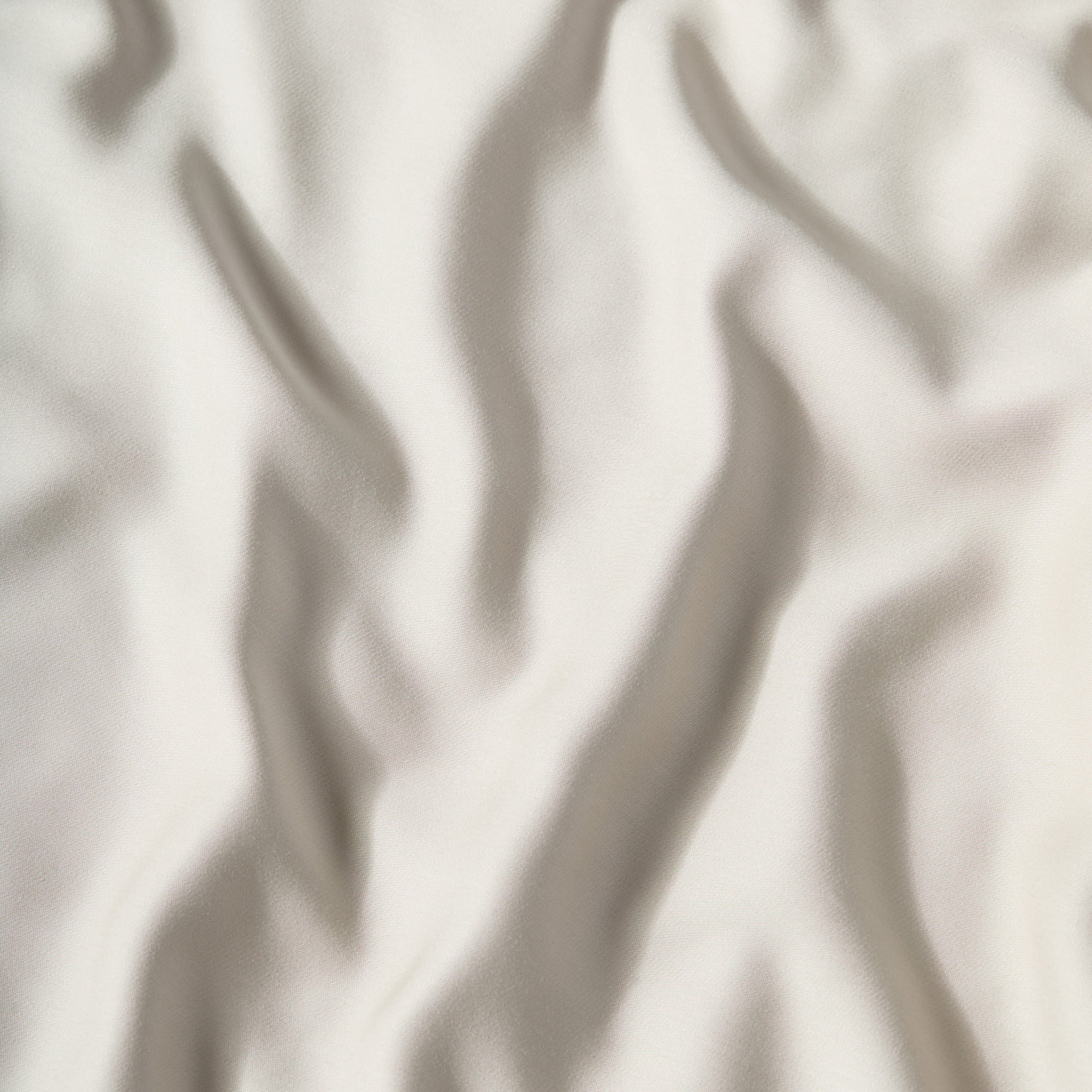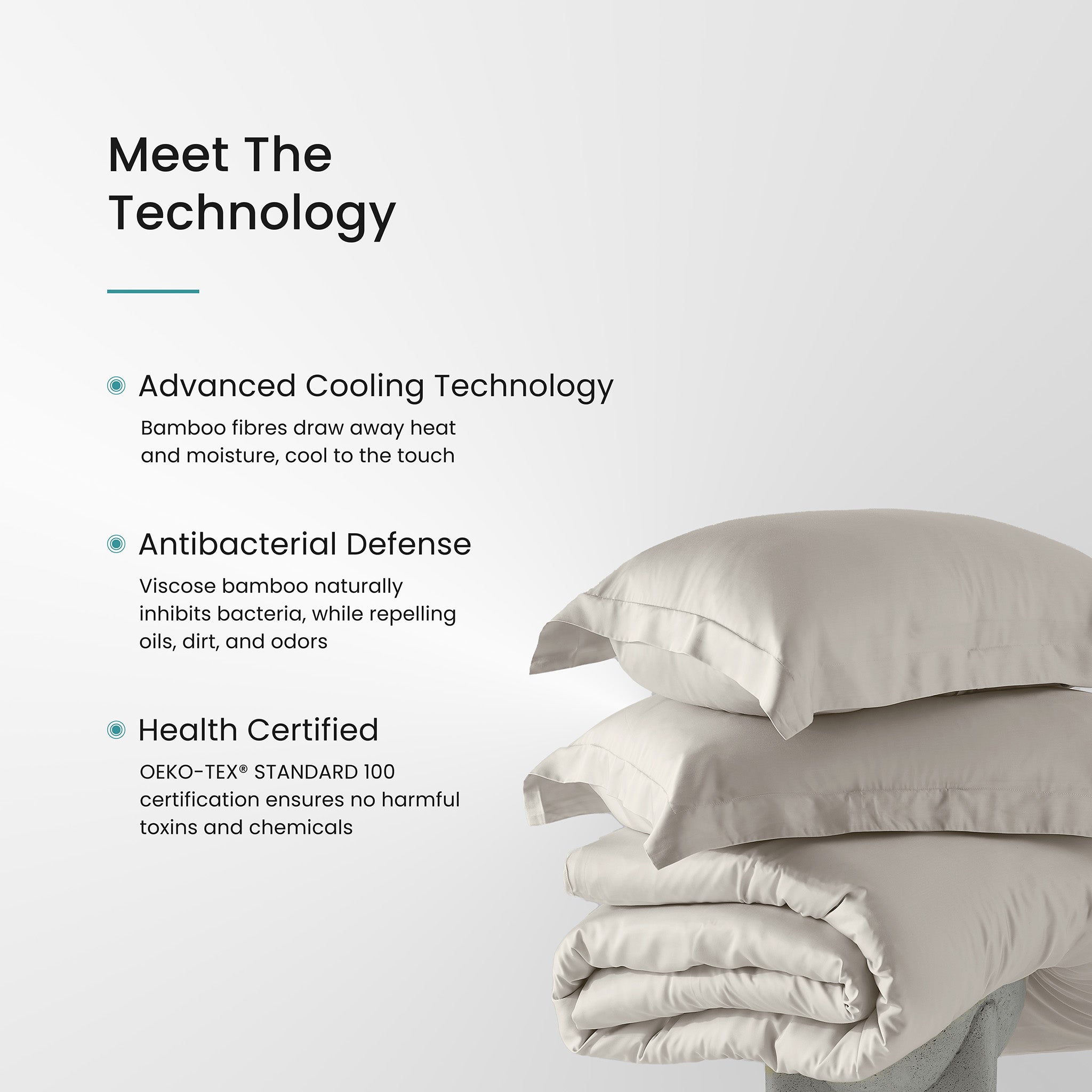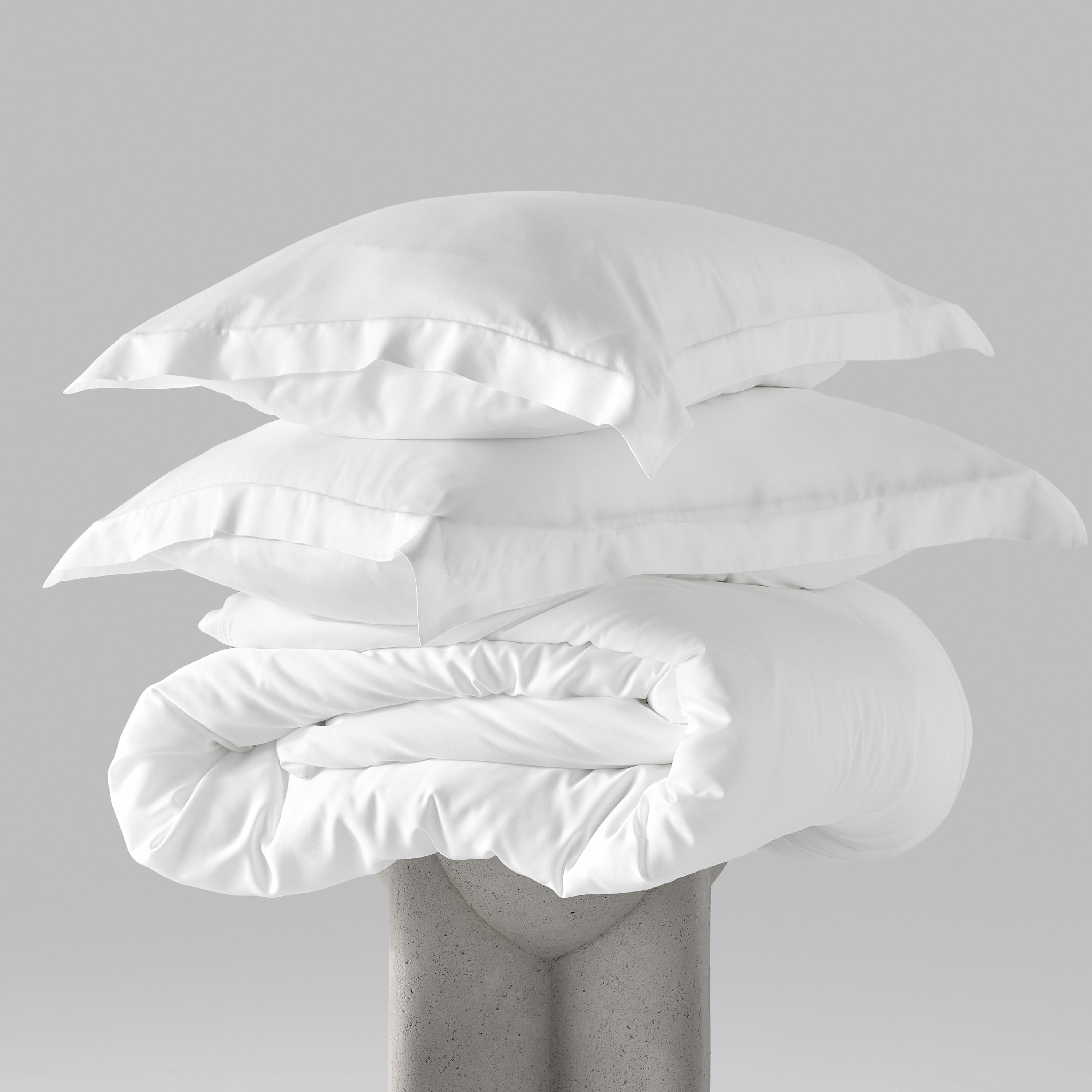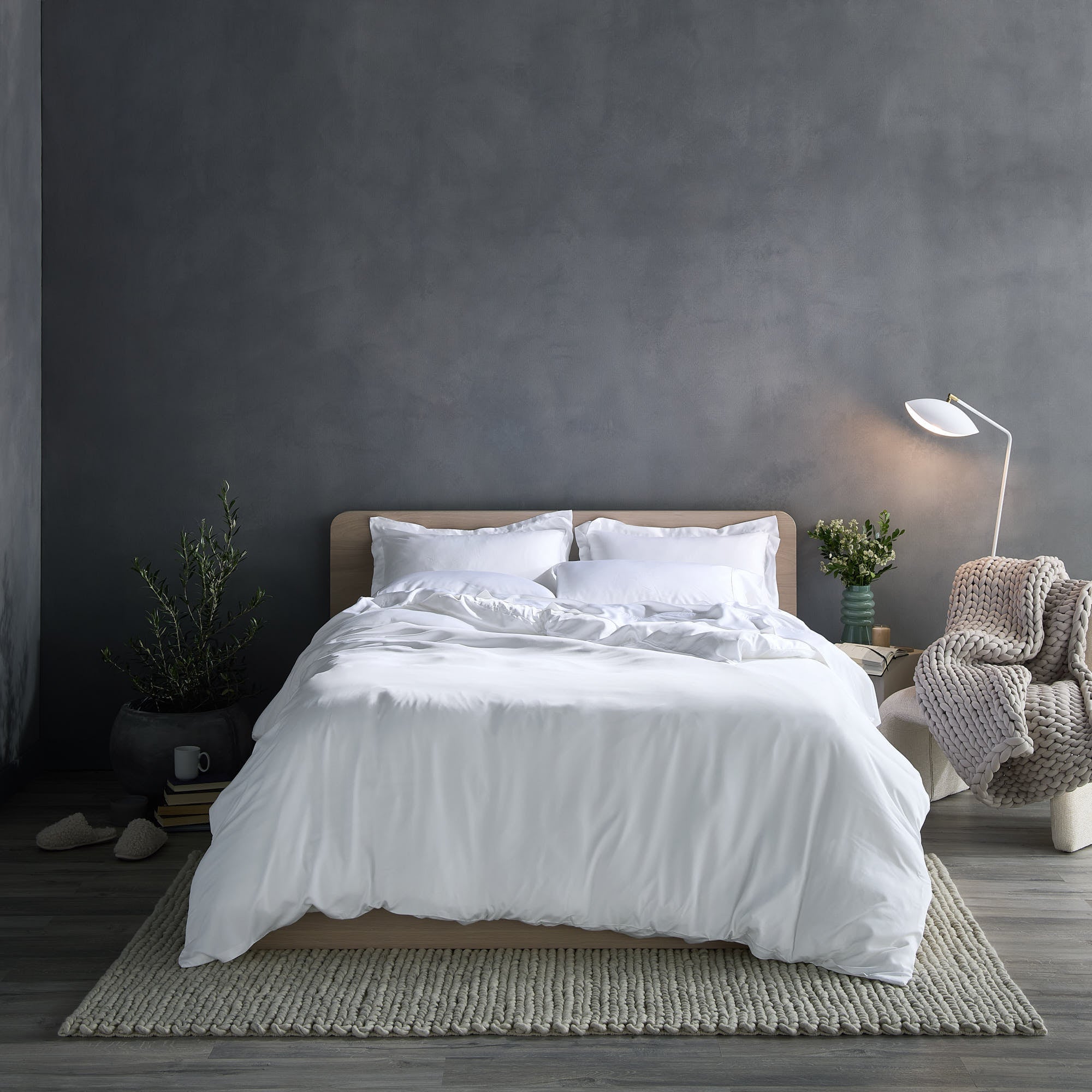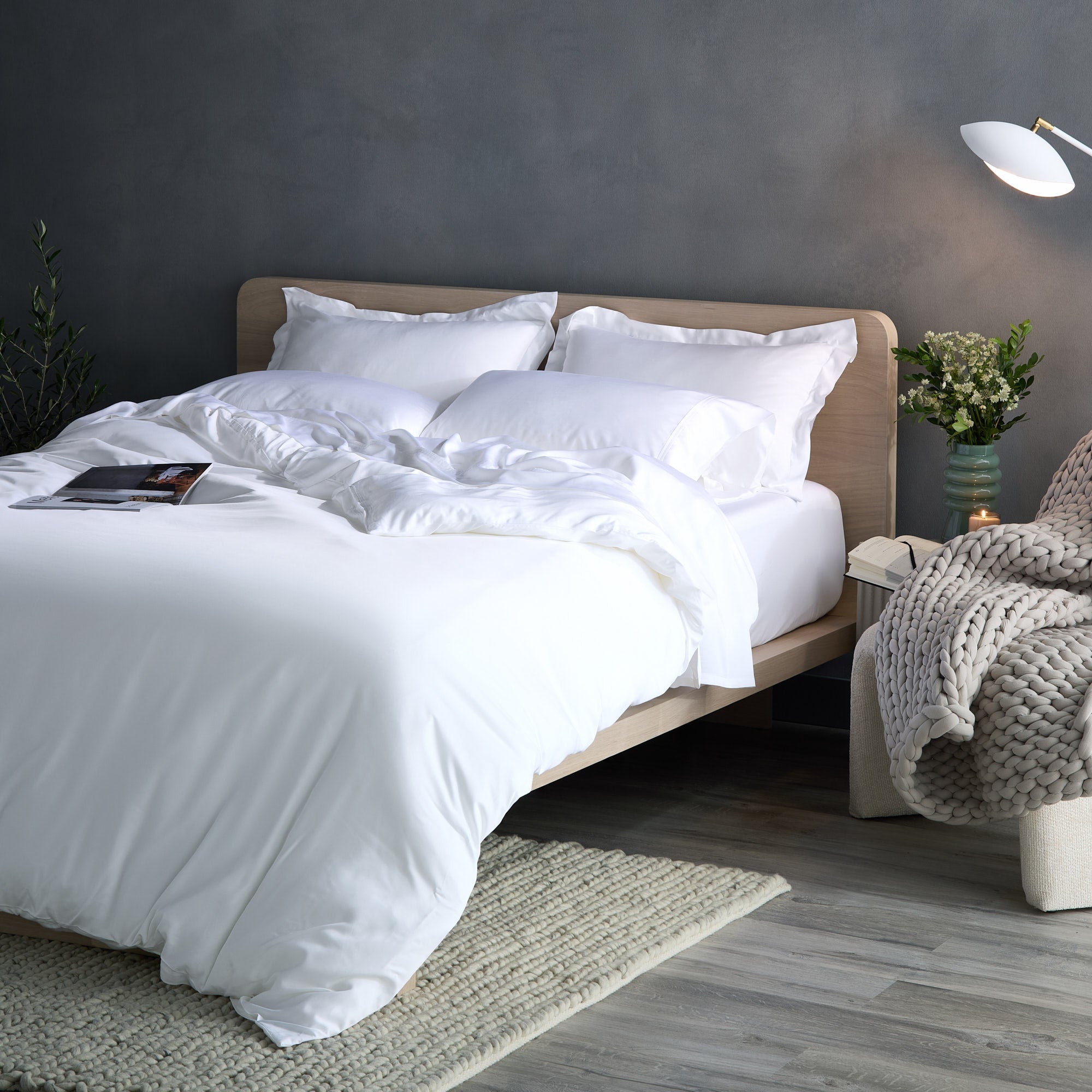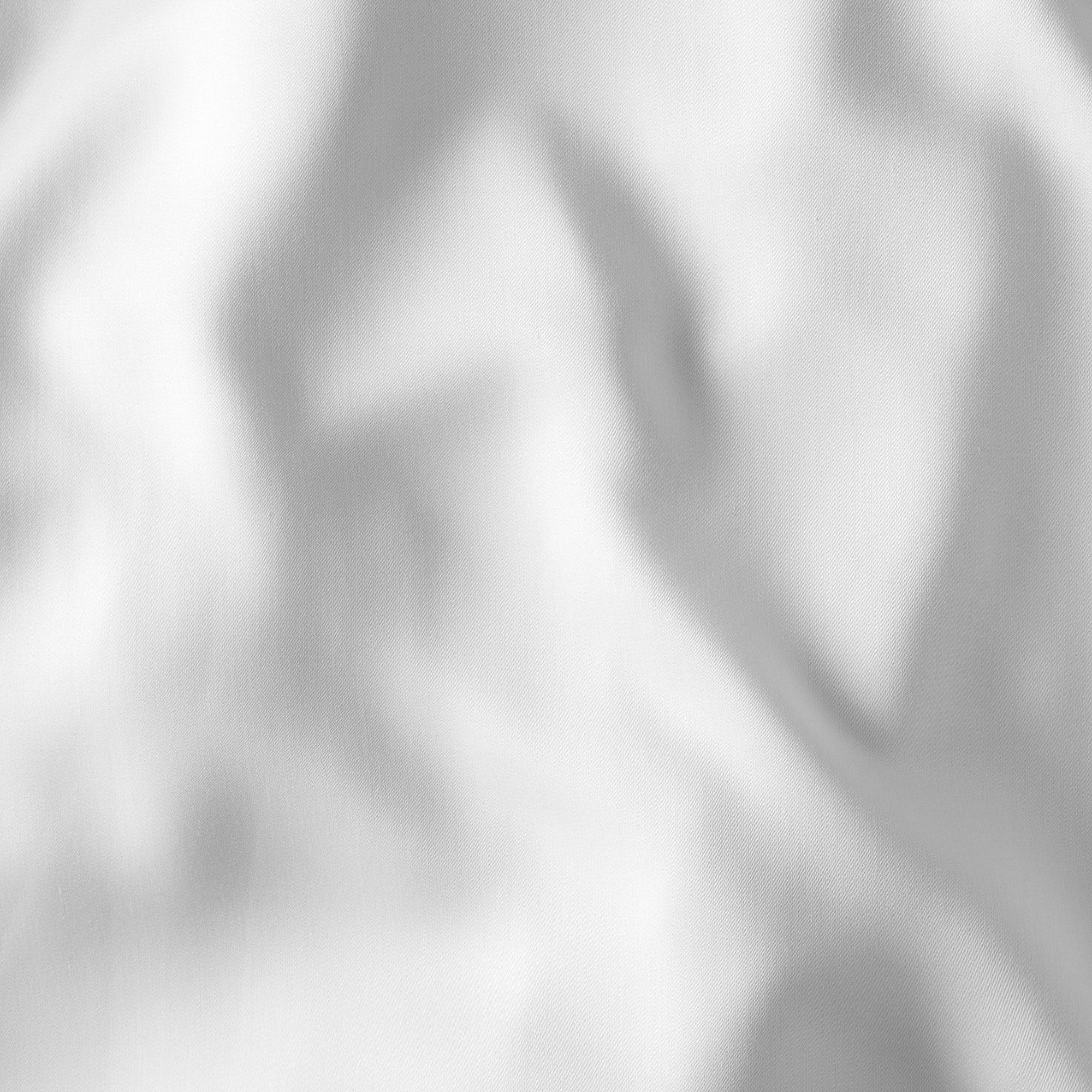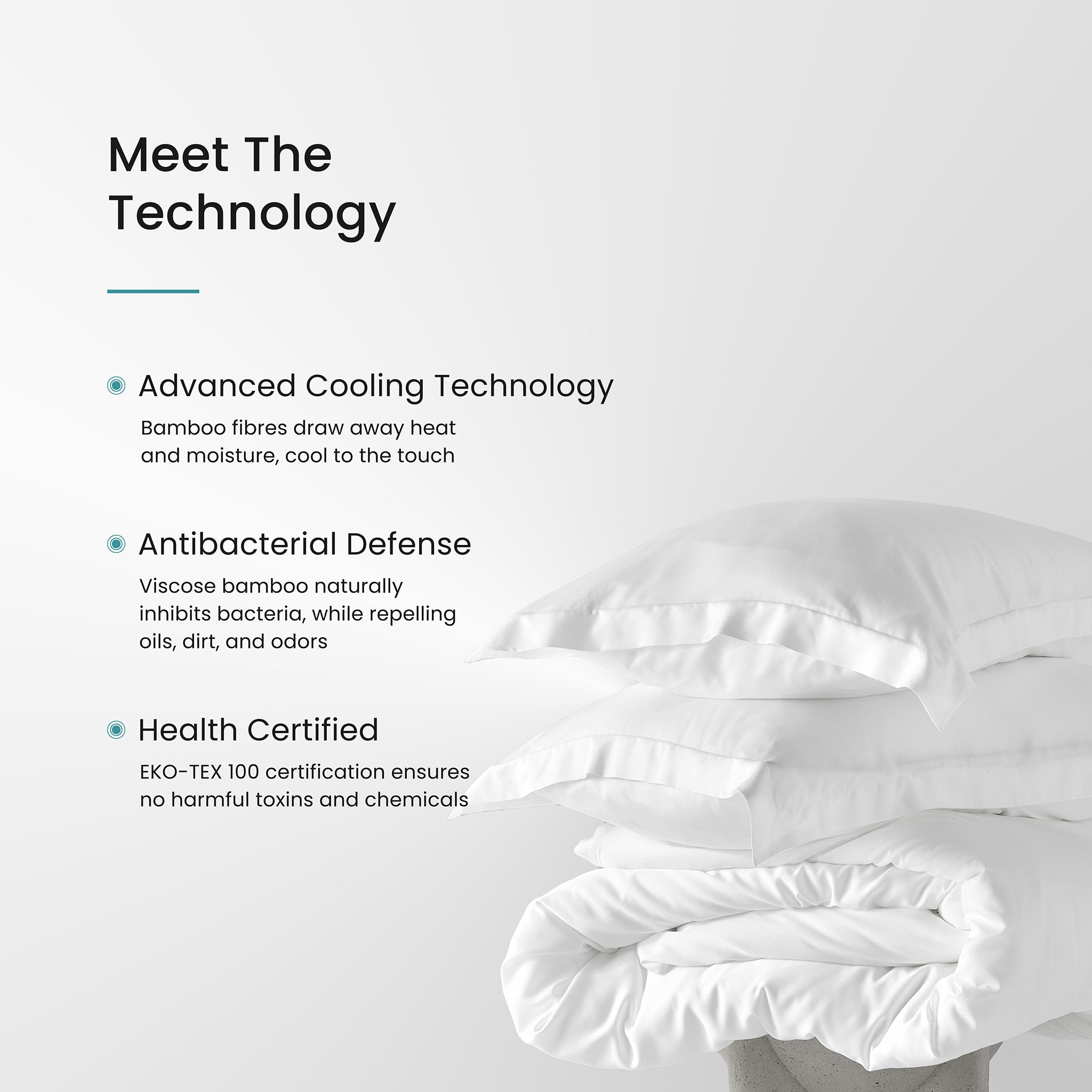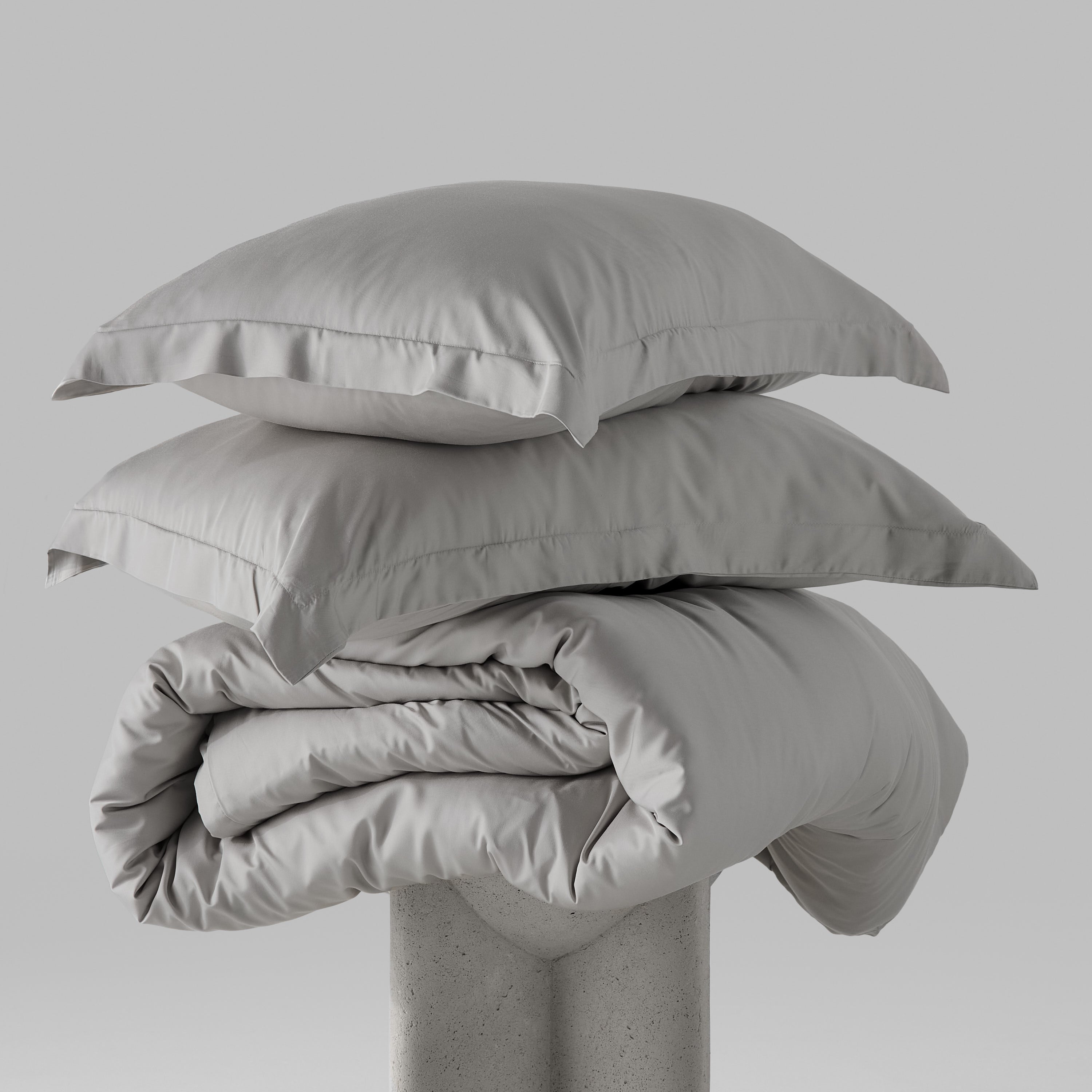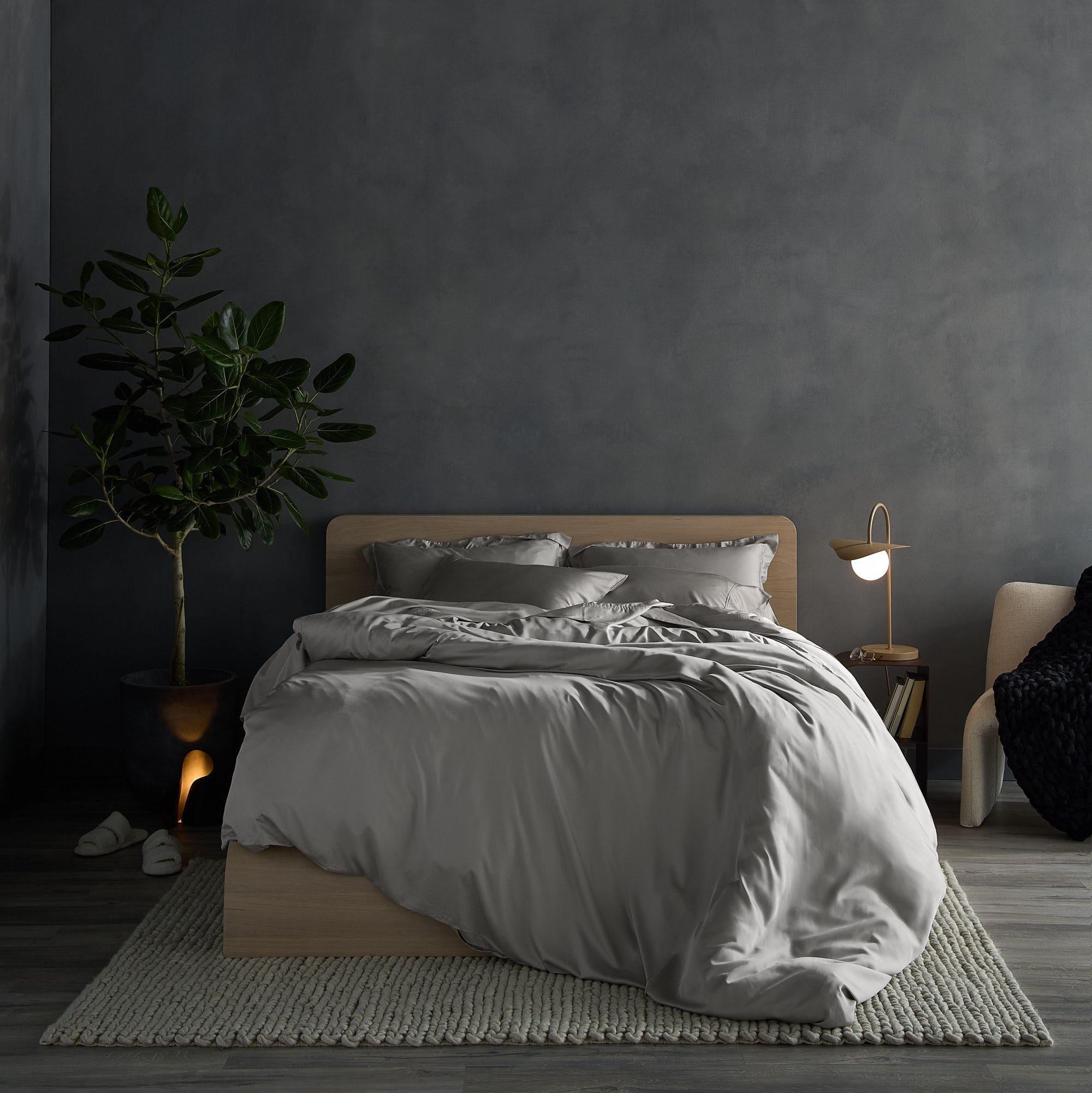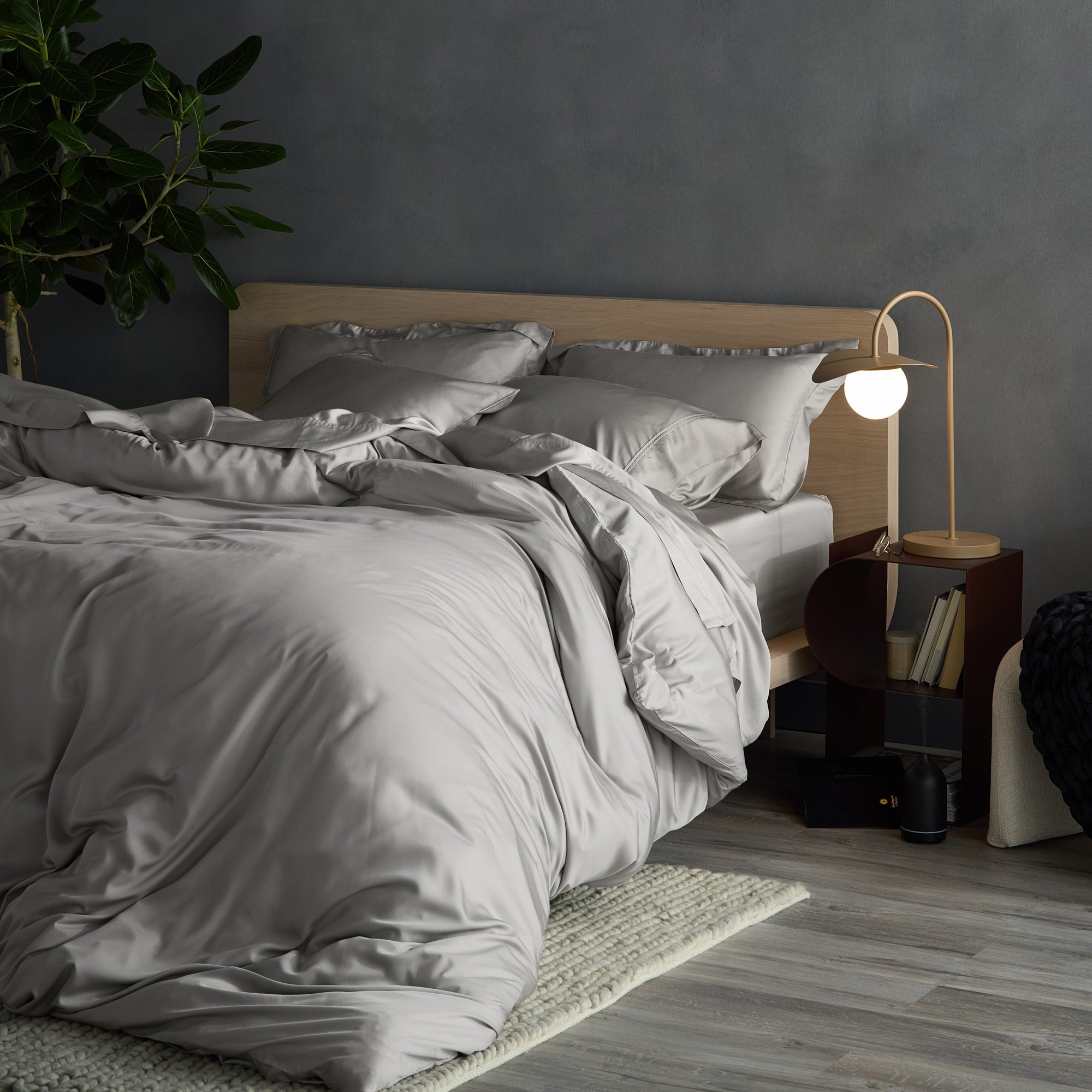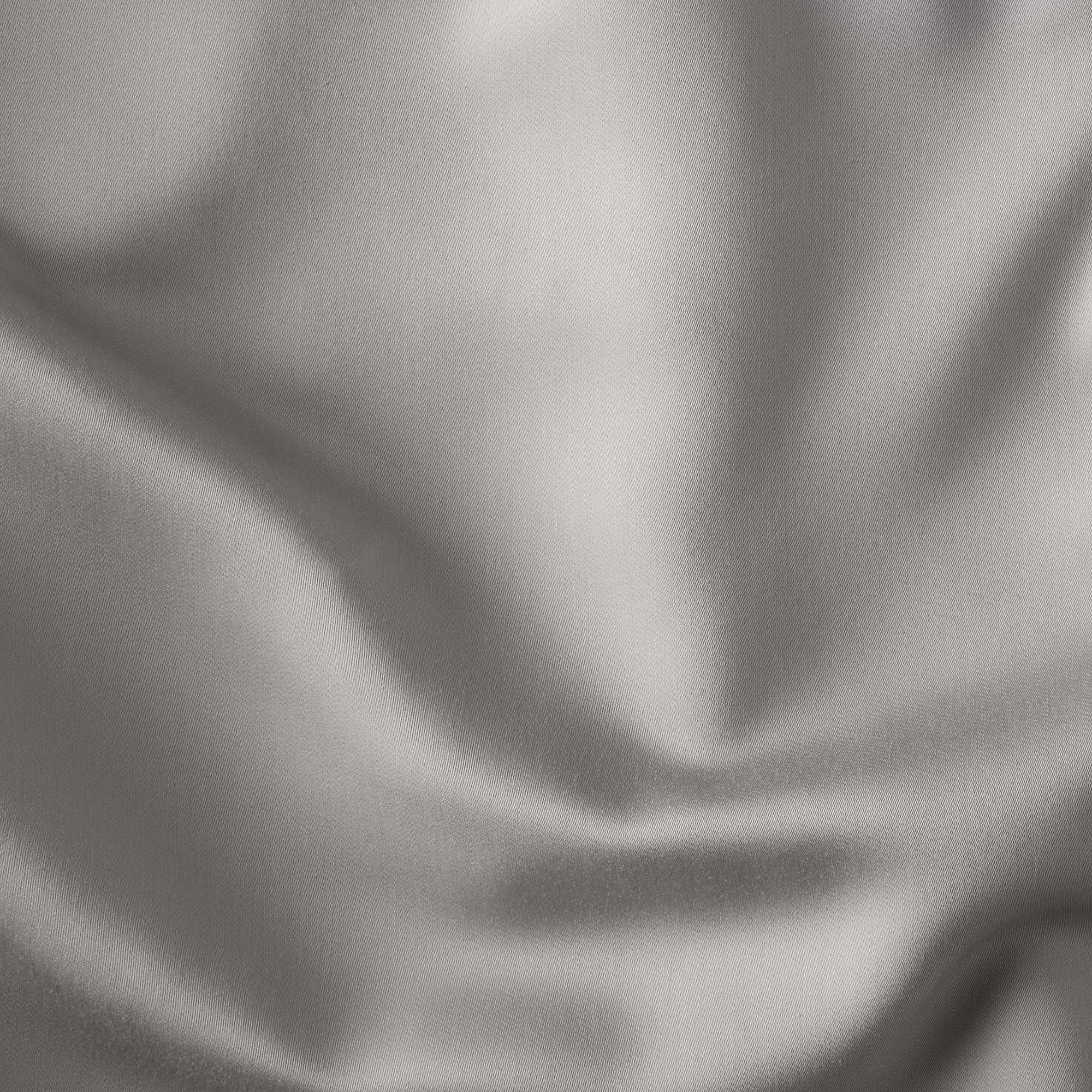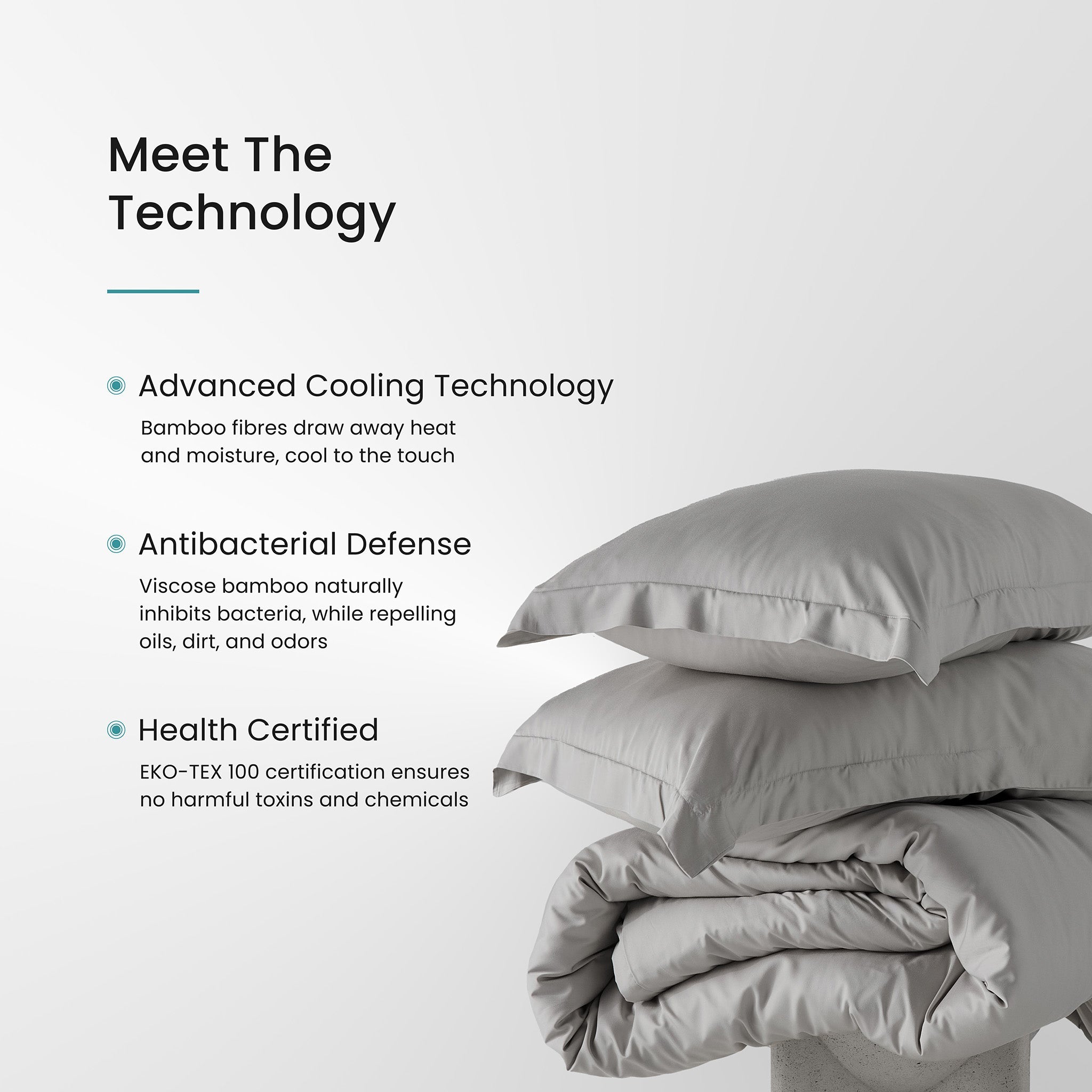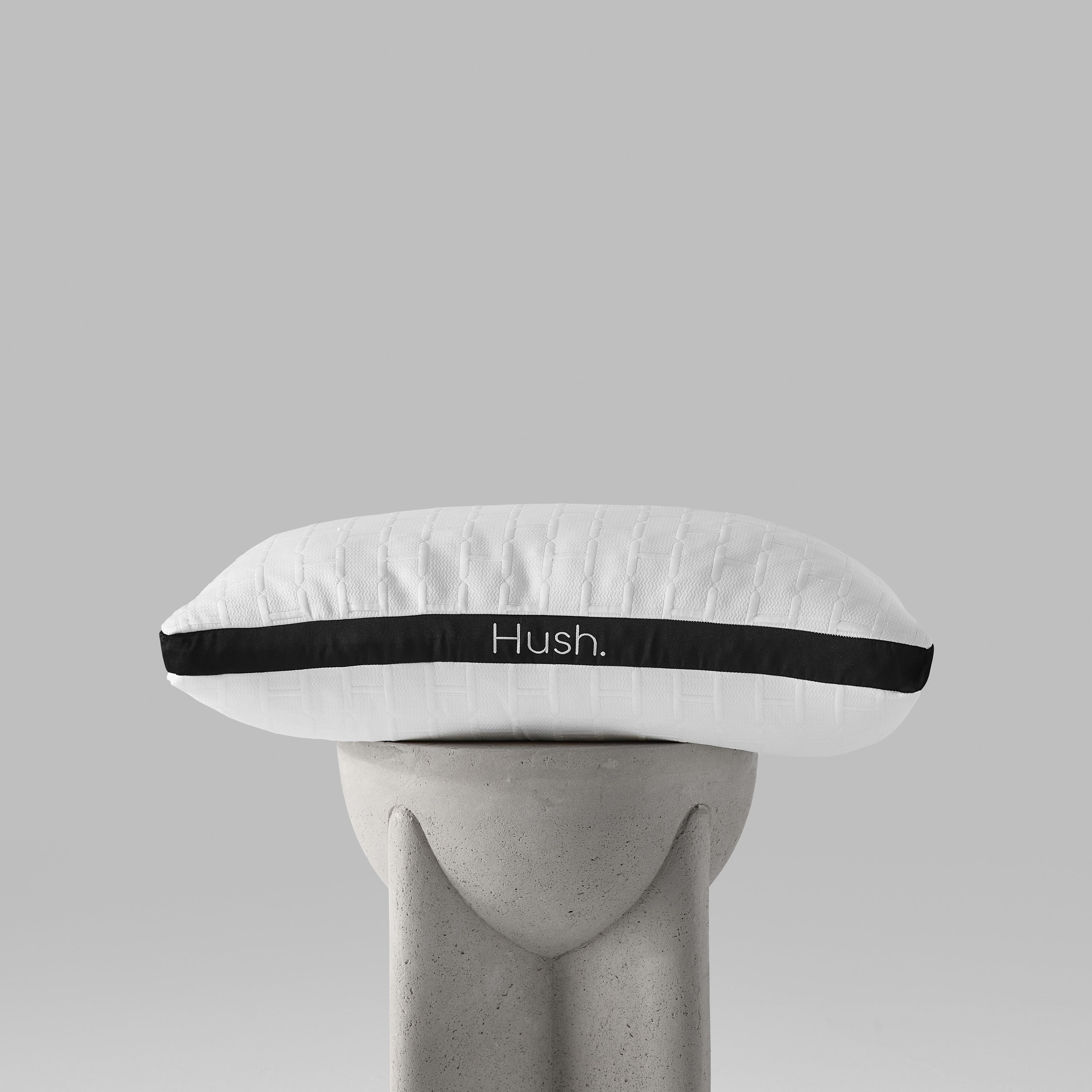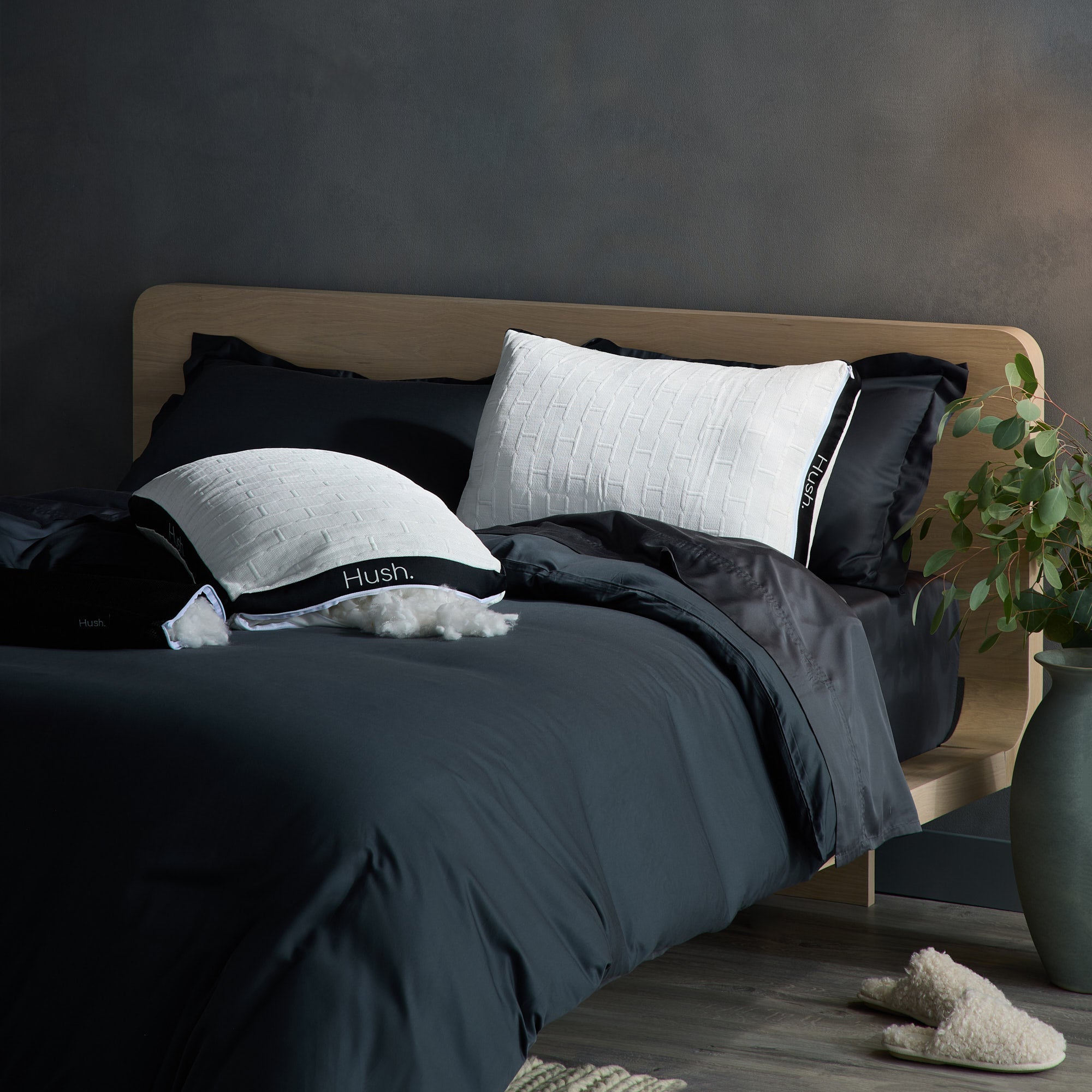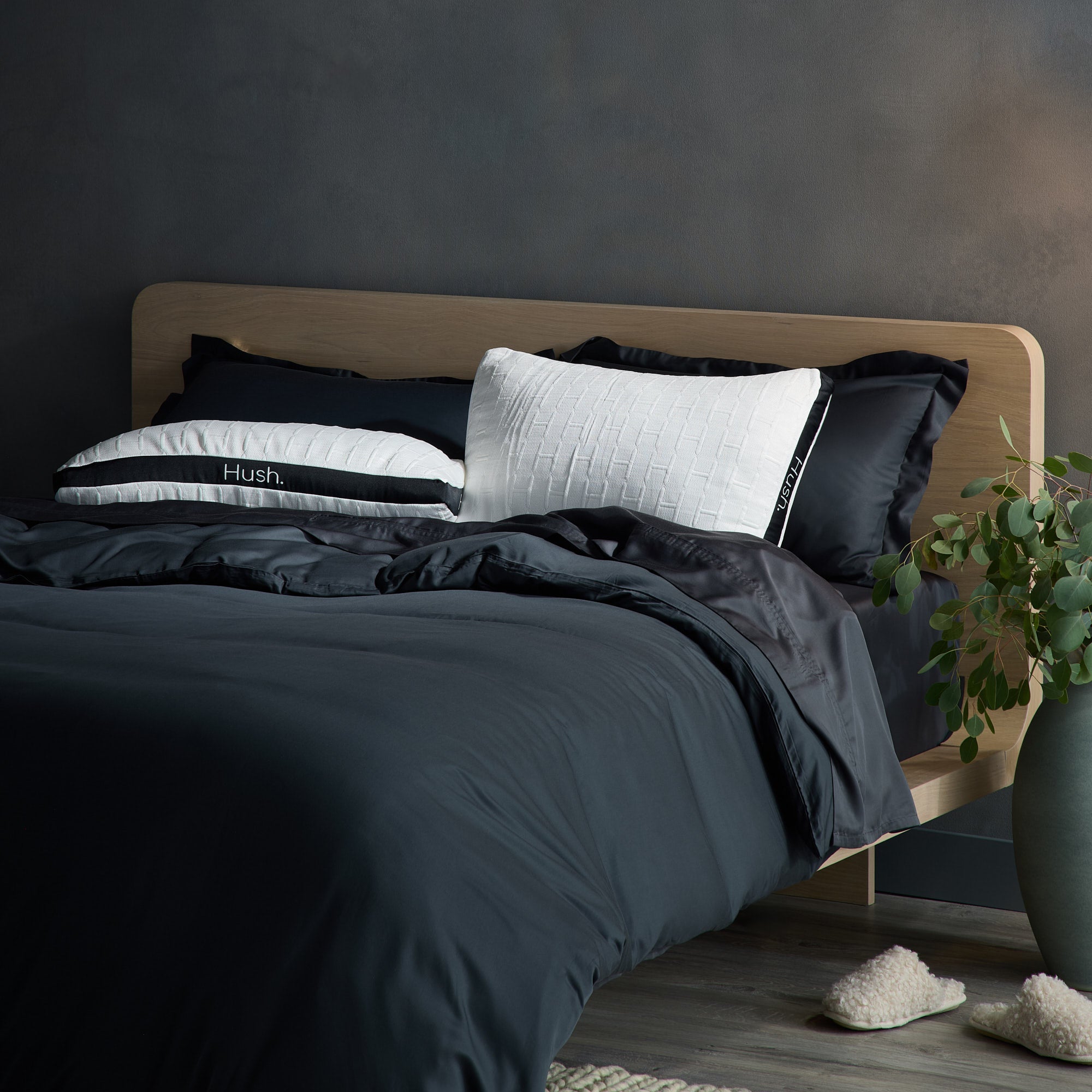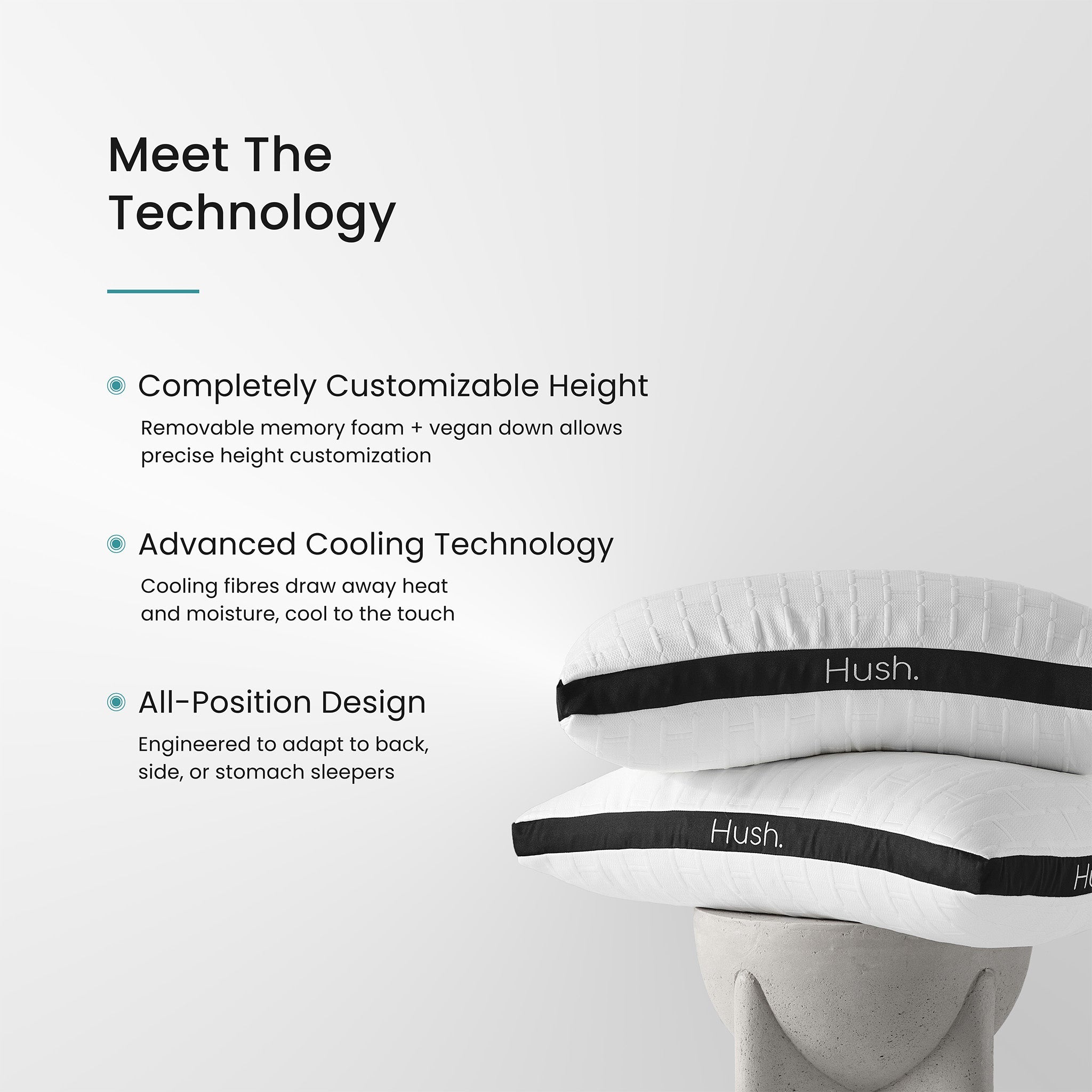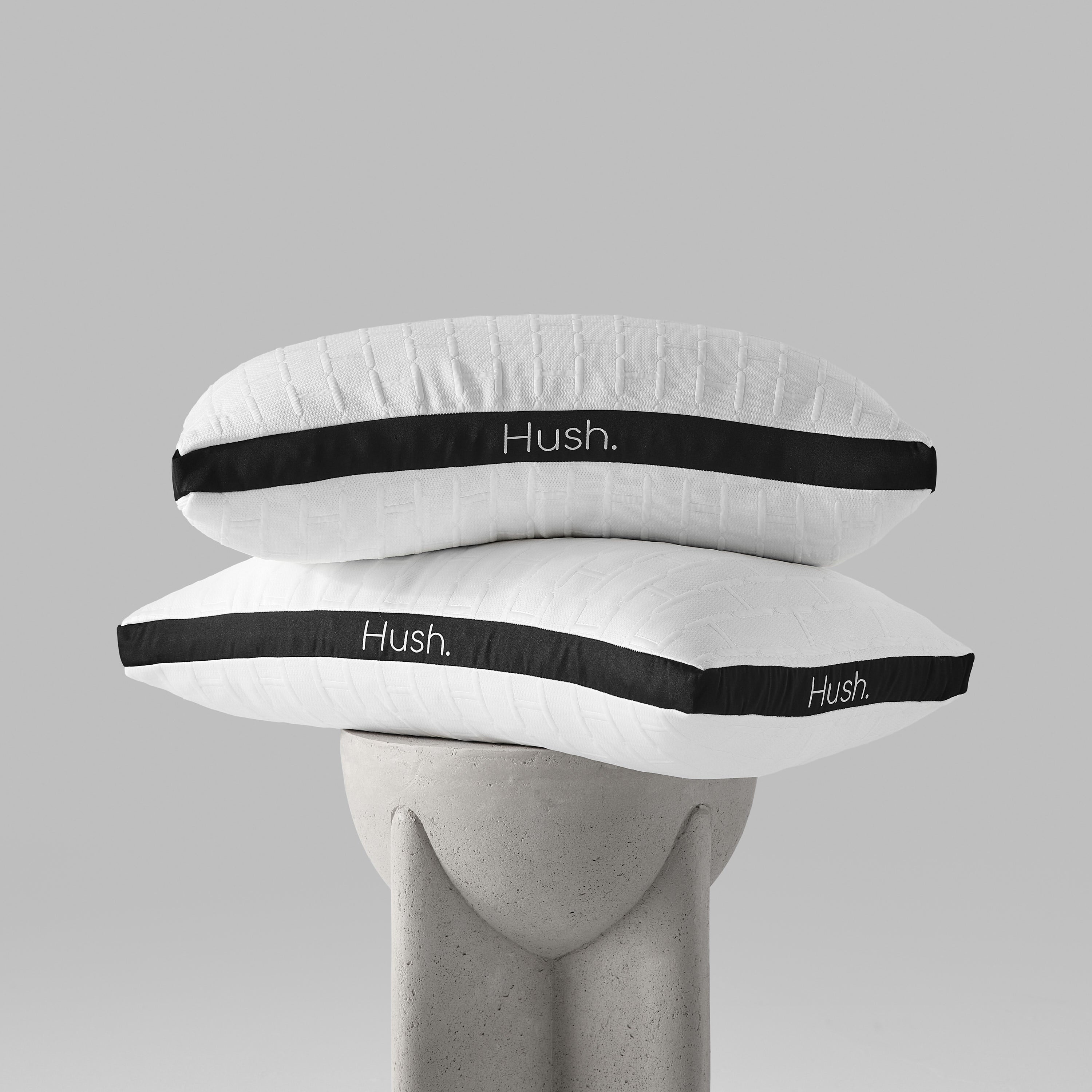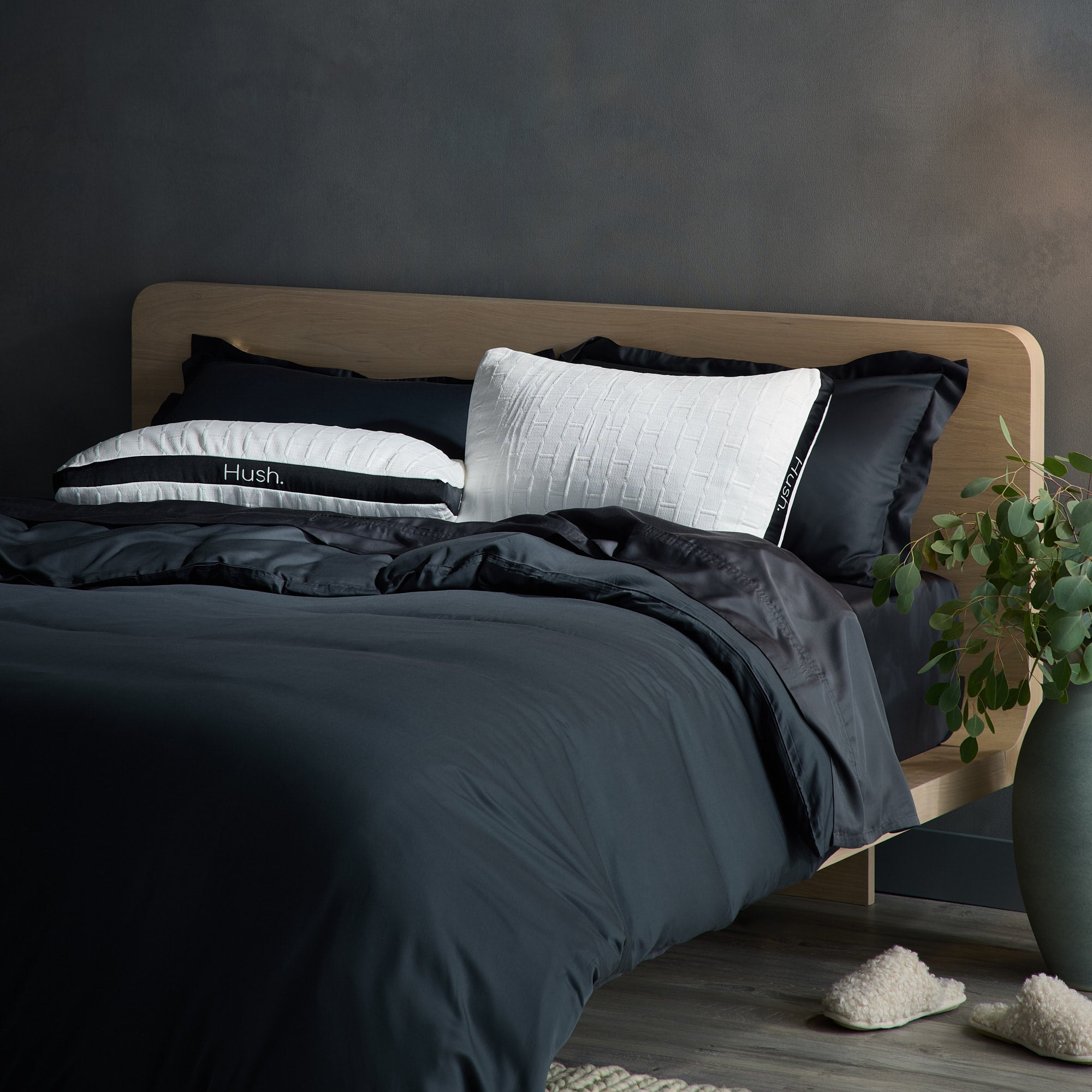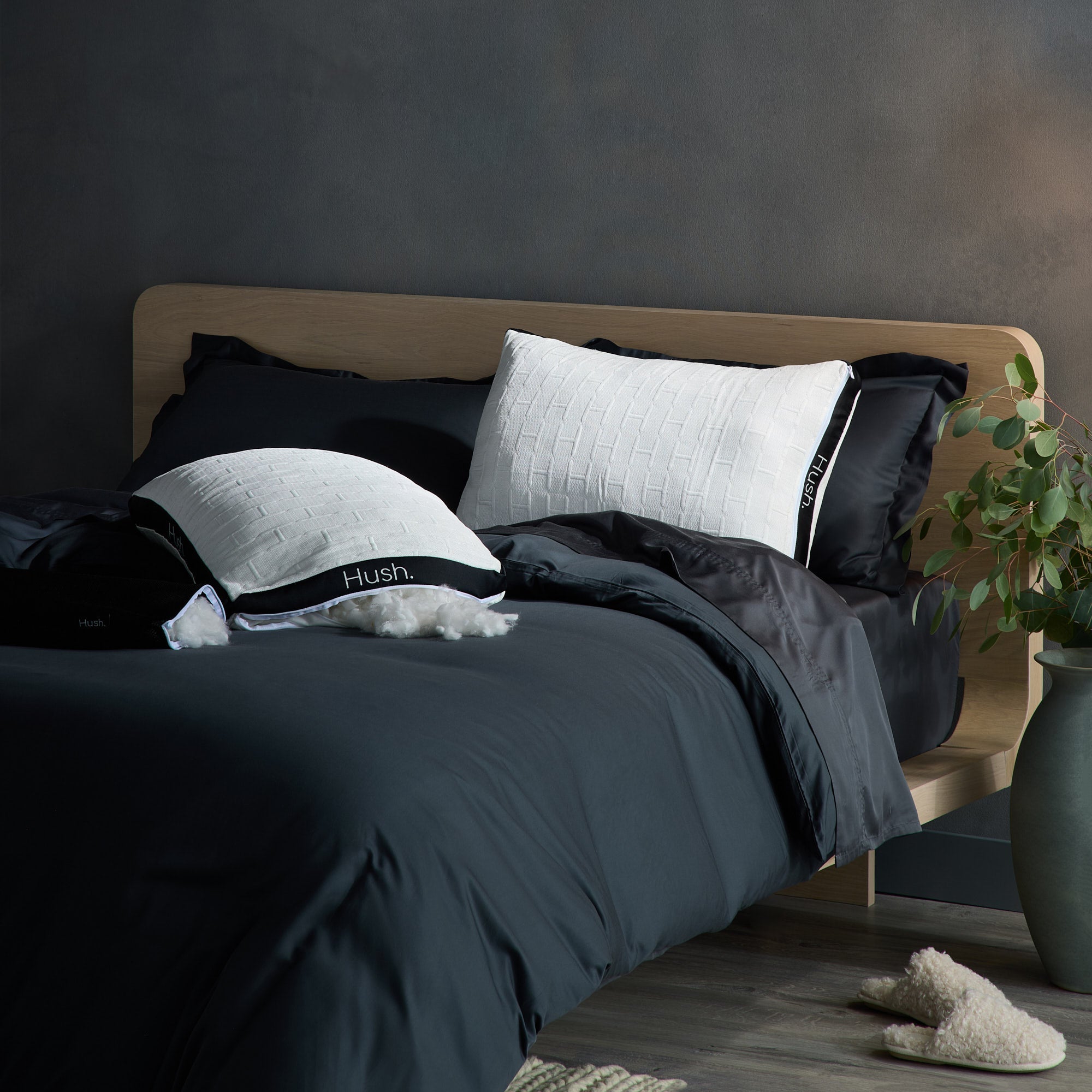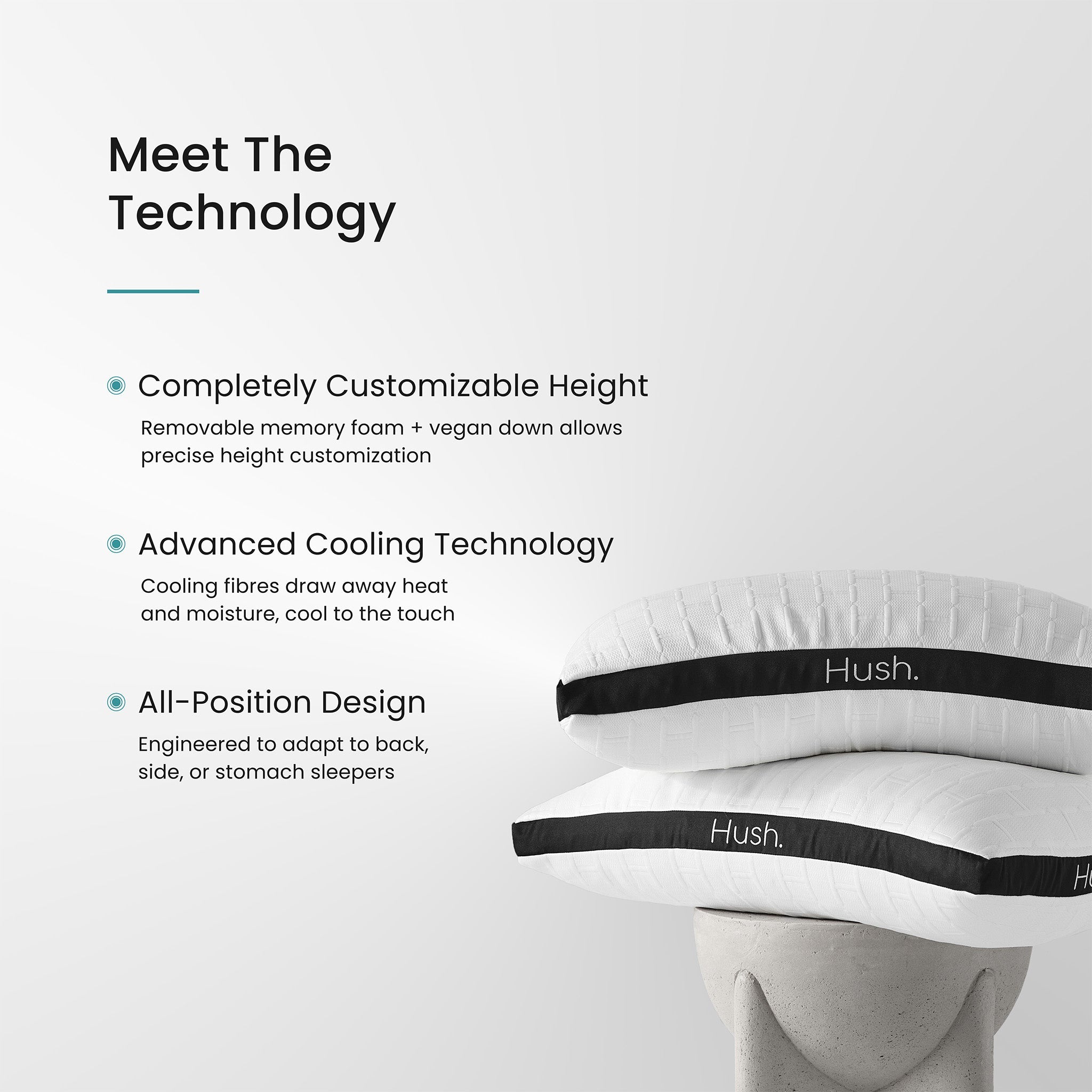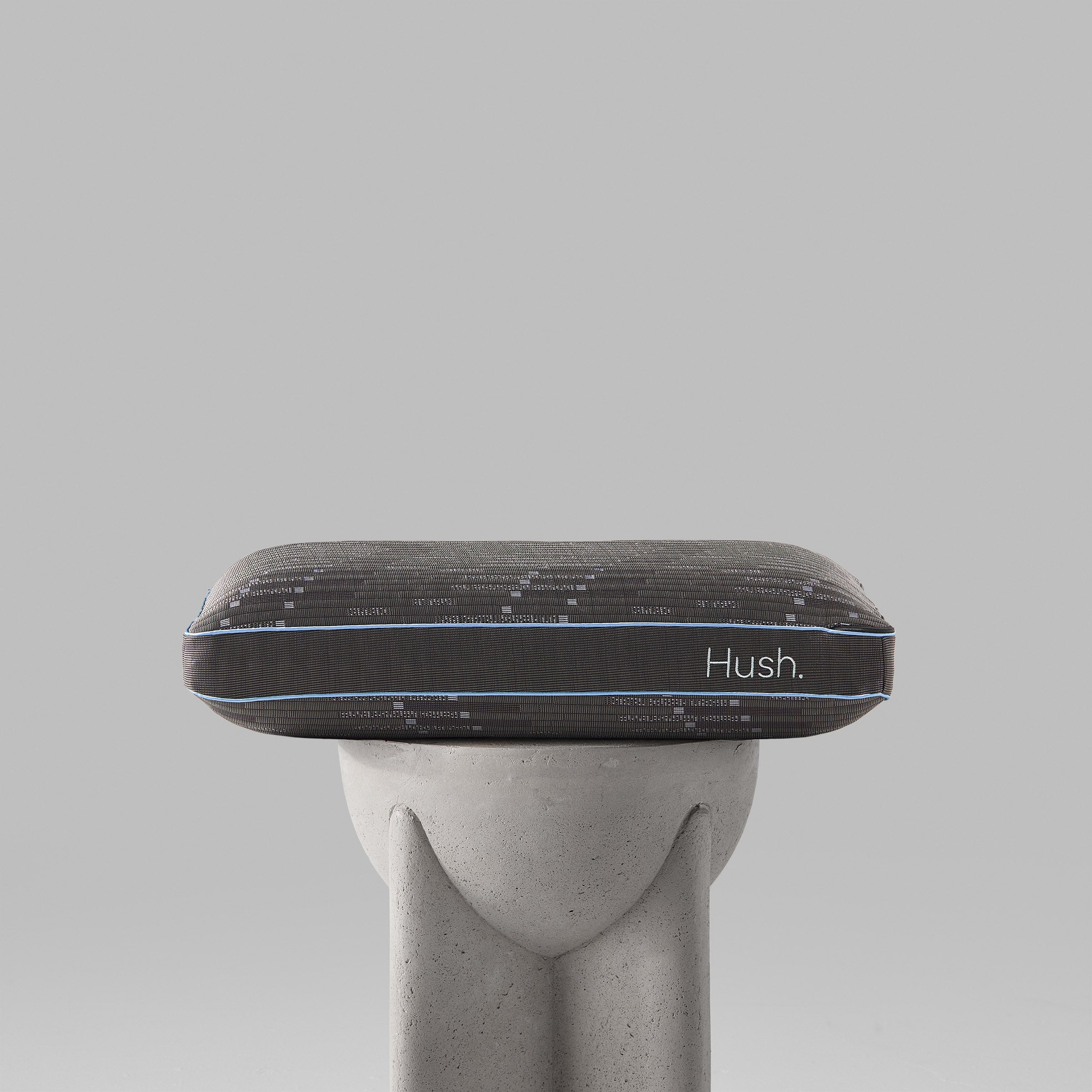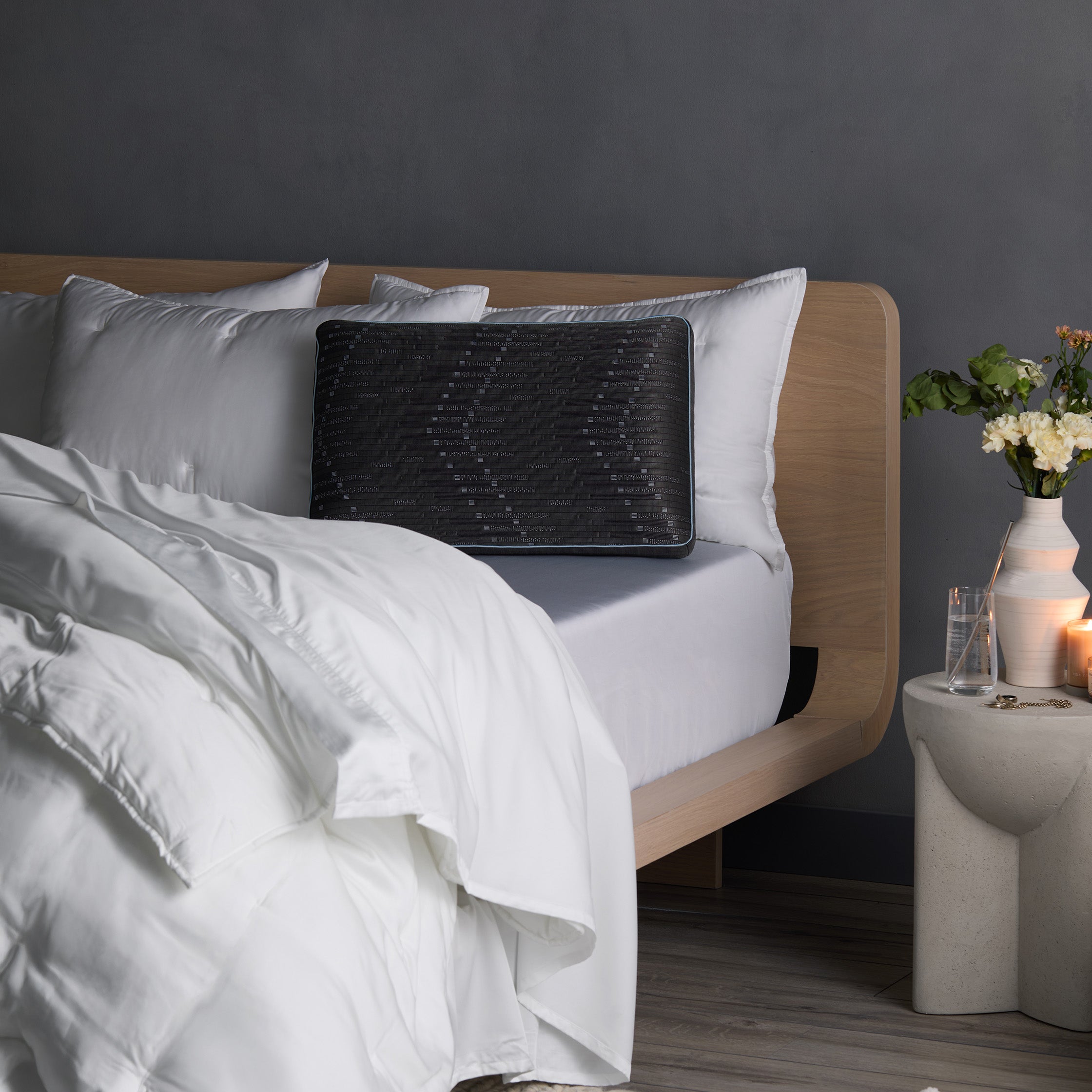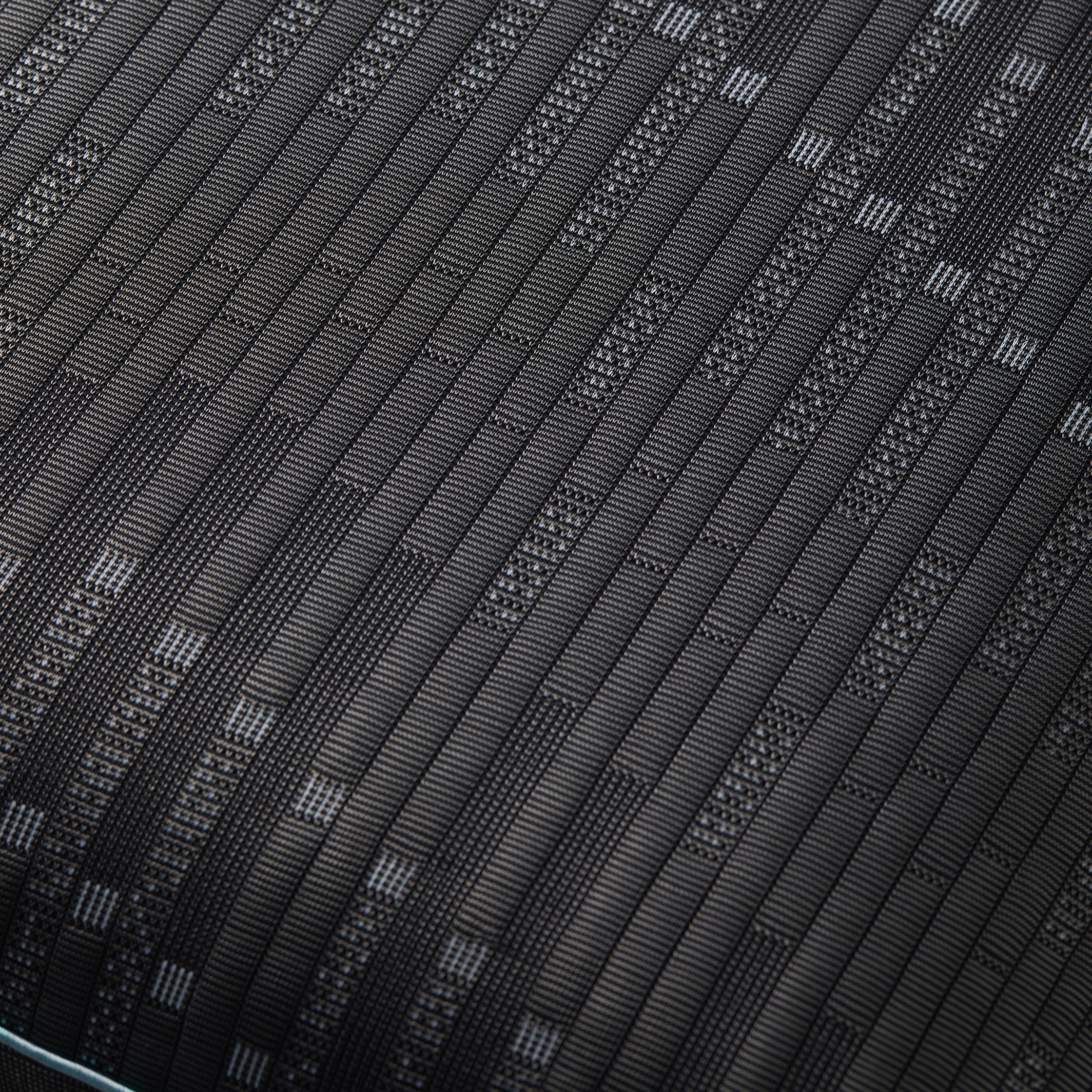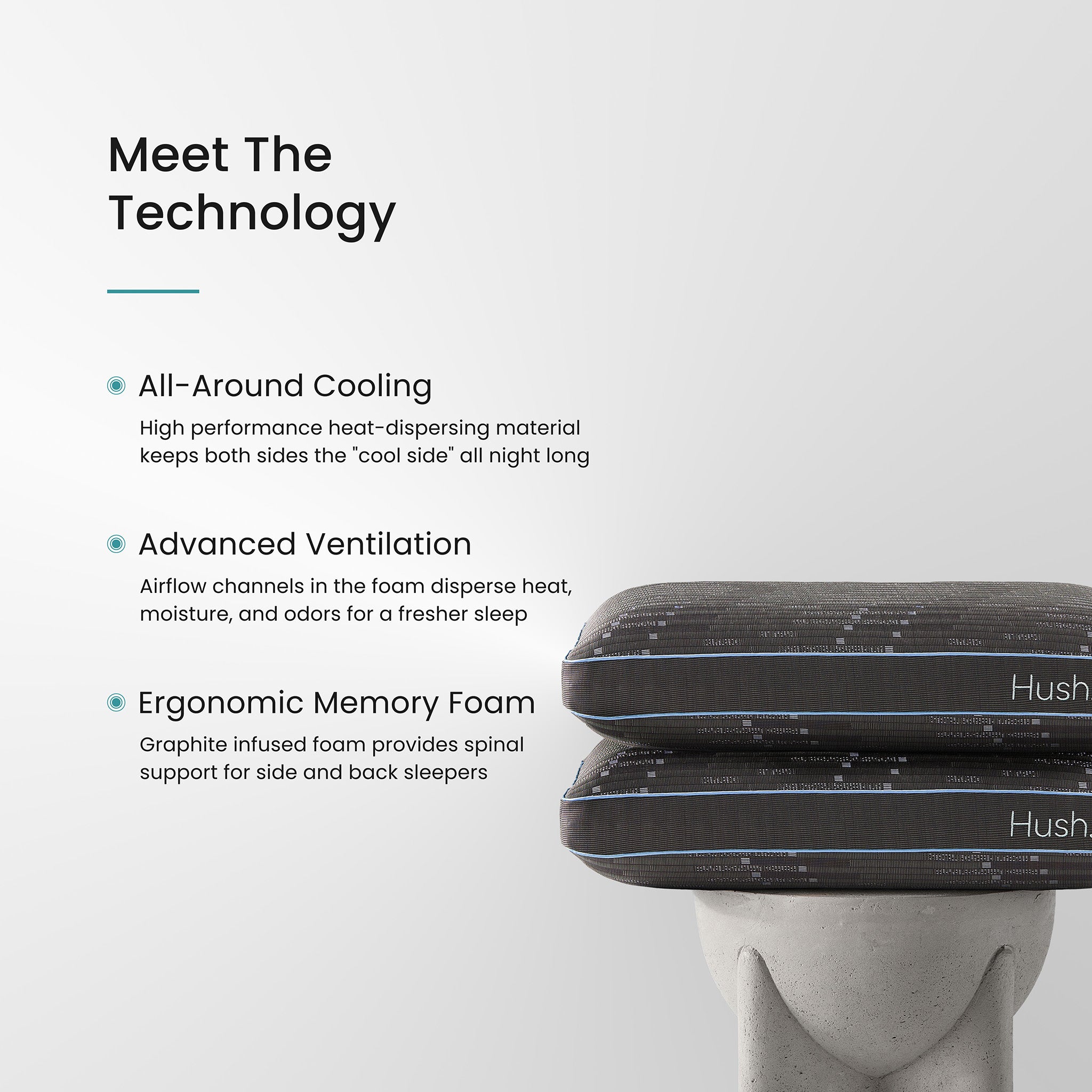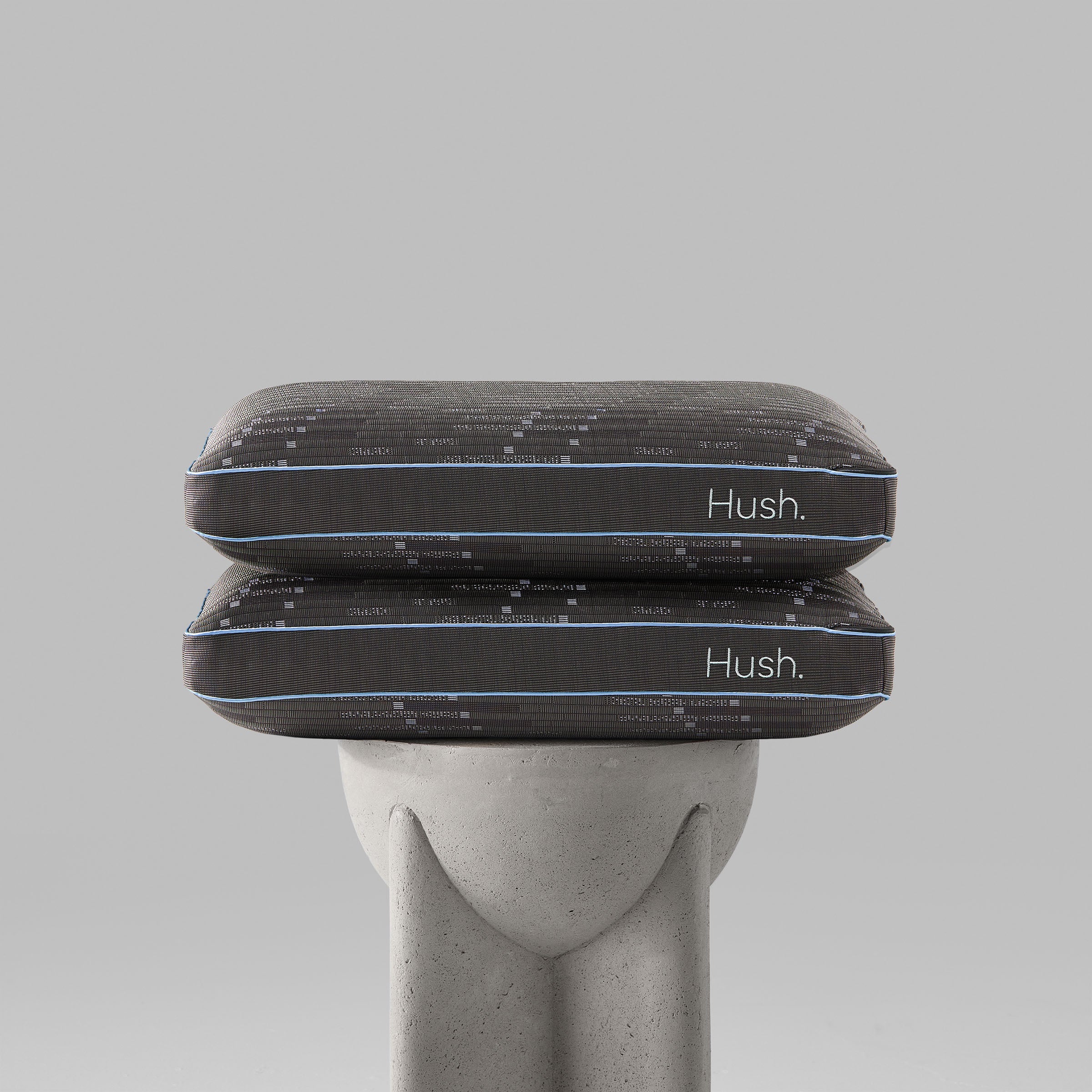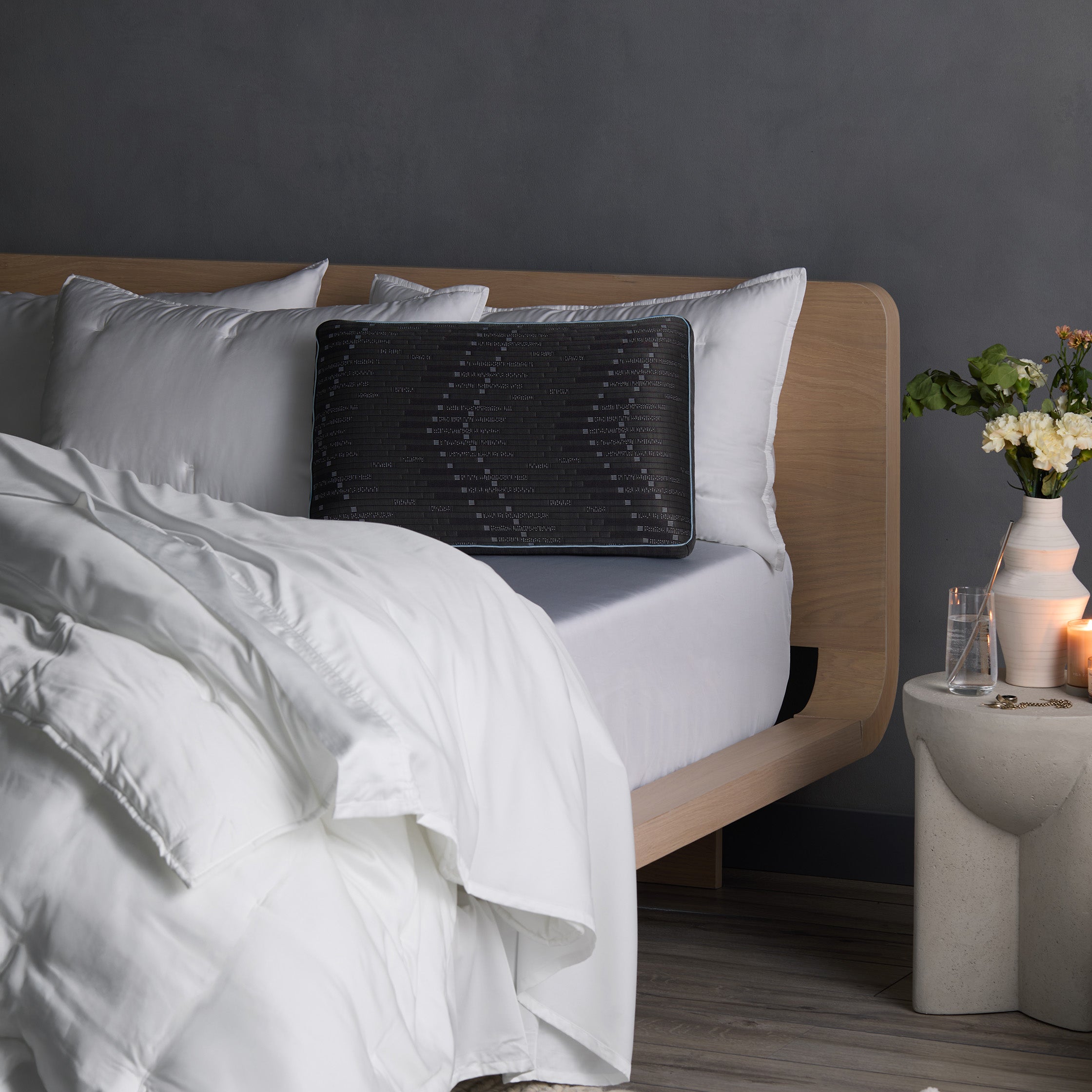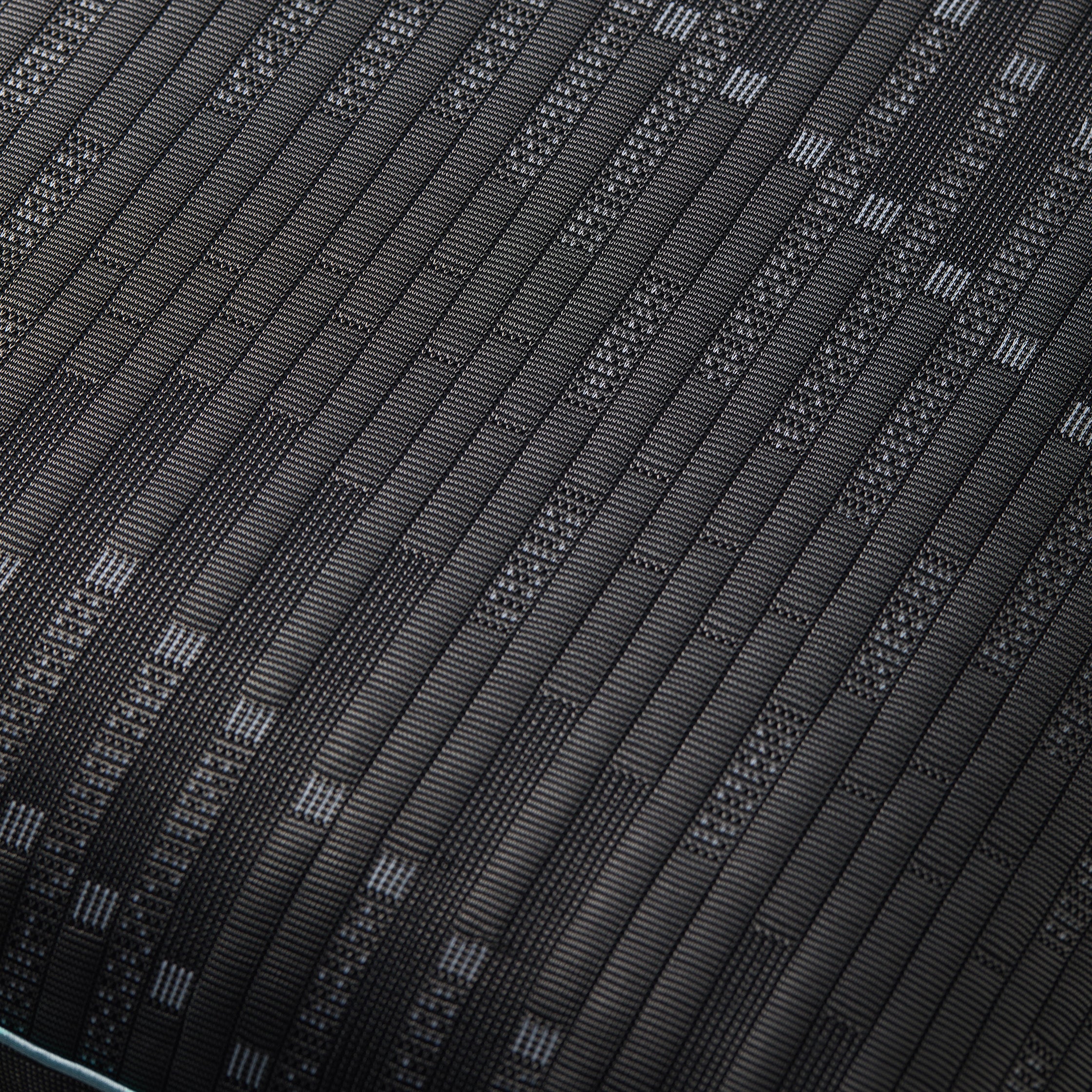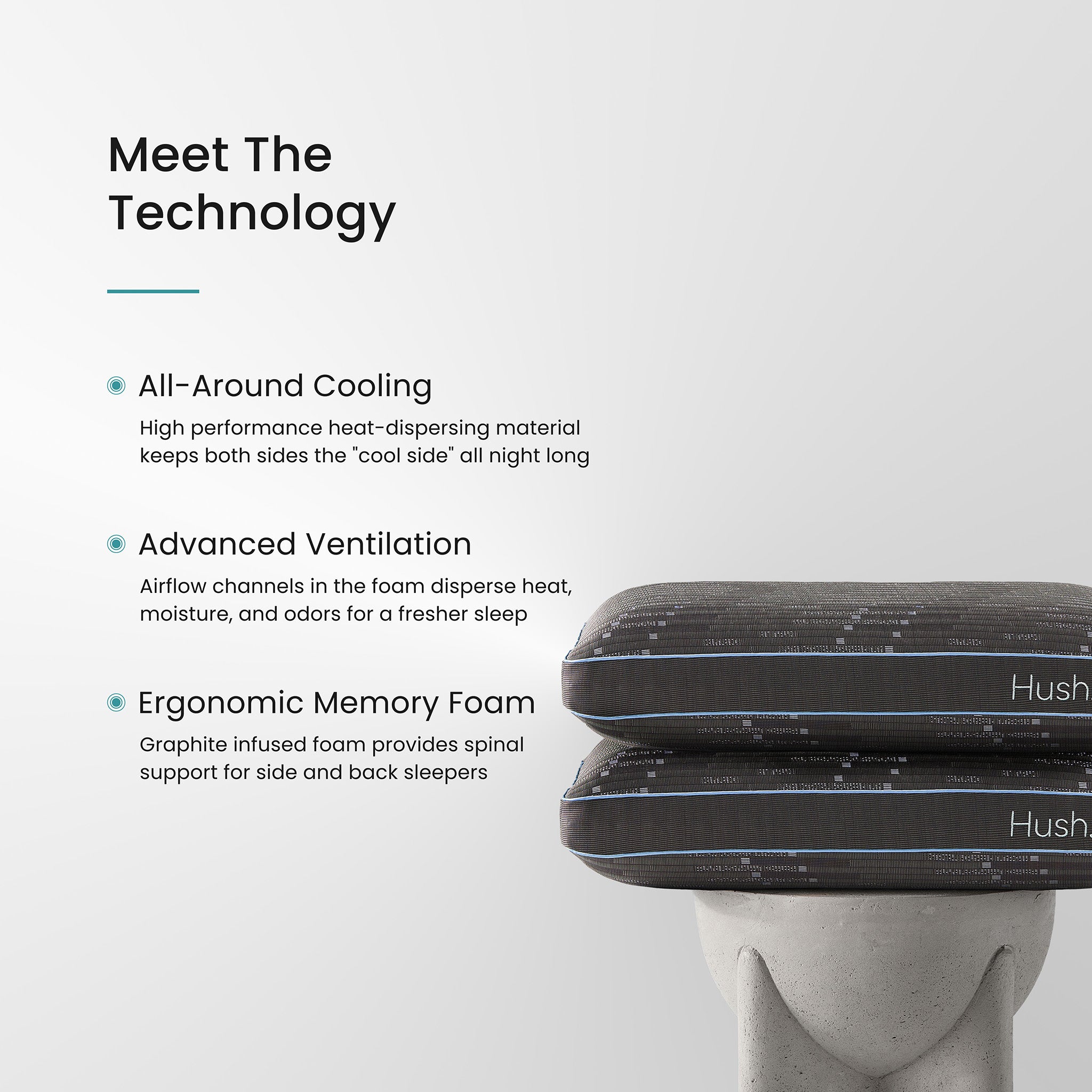We spend about a third of our lives in bed, and all that time snuggled up leads to a fact of life we’d all probably rather not think about: sheets are gross.
Even if you’re someone who changes them once a week, lab tests have found that within 7 days pillowcases alone can harbor 17,000 times more bacteria than a toilet seat! If you’ve got asthma, allergies, suffer from acne, or just would prefer your bed not be such a petri dish, antimicrobial sheets can be a big help for keeping germs in check.
In this article, we’ll take a look at the best antimicrobial sheets Canada has to choose from, and what’s so great about them. We’ll also answer some of the common questions people ask about them.
By the end of the article, you’ll have a good understanding of what goes into sheets that are as uncomfortable for bacteria as they’re comfortable for you.
Of course, if you’d rather just get the best ones without reading any further, click here.
The Best Antimicrobial Sheets
Hush Iced 2.0 Sheets
We know, it’s a total shocker that we think our Iced 2.0 sheets are the best antibacterial ones you can buy in Canada. Stay with us for a minute, though: there is some solid evidence backing us up on this.
First of all, we use only 100% organic bamboo of the highest quality to make our sheets. Bamboo is antimicrobial by nature, and bamboo fabric has been shown to slow the growth of bacteria, even after the plant is processed.
That means our sheets stay cleaner for longer without any kind of chemical treatment or additive to increase their germ-fighting power.
Of course, a quick search online will show you there’s a shoot-load of bamboo sheets on the market, but many brands cut costs by blending their bamboo with other fabrics or by using low-quality fiber.
We’re different because we’re sticklers about the raw materials we use — we don’t buy our bamboo in the summer, for example, because it doesn’t hold up as well — and how we go about the manufacturing process.
We took our time designing the Iced 2.0 sheets to make sure they’re as smooth as silk, so effective at cooling that they actually live up to their name, and durable enough to last for years.
If you’re looking for a set of sheets that naturally keeps bacteria at bay without compromises in comfort or durability, you really can’t beat the Hush Iced 2.0.
Miracle Brand Sheets
Miracle Sheets are another popular option for antimicrobial bedding that puts silver ions to work inhibiting bacteria growth. According to their website, Miracle Sheets are 95% U.S.A. grown Supima cotton and 5% all natural silver.
Silver ions naturally possess germ-fighting properties on a molecular level. They have a positive charge which can disrupt bacterial metabolism.
Miracle Sheets claims this means you can do three times less laundry than with other sheets (though it’s important to remember that most of us could stand to wash our bed sheets more often).
The main drawback of anti microbial silver bedding is that there’s little to no research on how long-term skin exposure to silver can affect human health.
Still, reviews of Miracle Sheets are generally positive, with people giving them high marks for their silky feel and help with conditions like acne.
For those of us here in Canada, Miracle Sheets can be a little spendy, since the company is based in the U.S.A. and charges extra for international shipping.
If that isn’t a dealbreaker for you (and neither are the unknowns of snuggling up with metal every night), Miracle Sheets are another solid option for cleaner sleep.
Common Questions about Antimicrobial Sheets
What makes sheets antimicrobial or antibacterial?
There are a few approaches to making sheets antibacterial. One common method is the infusion of chemical additives into regular sheets during the manufacturing process. These additives can help otherwise ordinary cotton bed sheets inhibit the growth of bacteria and other microorganisms, helping them stay clean.
The big drawback to this approach, of course, is that while these chemicals are generally approved for use in bedding, it’s unclear what long-term effects they may have on the human body and the environment.
If you’d like to avoid getting snuggly with chemicals all night, you’ve got options in terms of naturally antimicrobial materials in sheets. Silver or copper infused sheets, certain wools, and, of course, bamboo all naturally inhibit bacterial growth and are used by many popular antimicrobial sheet brands.
It’s important to remember, though: there’s no substitute for washing your sheets on a regular basis. Even the cleanest bed sheets can accumulate dead skin cells, the dust mites that love them, dirt, sweat, and even mold over time.
Are antibacterial sheets worth it?
There are a number of reasons why antibacterial sheets are worth the investment.
- If you suffer from acne or allergies, antibacterial bedding can help reduce the frequency and severity of breakouts or skin rashes by inhibiting the growth of the types of bacteria that make them worse.
- People with compromised immune systems or who live in long-term care homes can benefit from using antibacterial sheets due to the reduced risk of infection.
- Since they don’t allow the same rate of growth of the bacteria that causes odors, antibacterial sheets will stay clean and fresh smelling for longer.
- Antibacterial sheets made from sustainable materials like bamboo are environmentally friendly (even more so when you consider you’ll need to do laundry a little less often).
What fabric is best?
When it comes to naturally antimicrobial fabric, bamboo and wool are the two best choices.
As we mentioned earlier in this article, bamboo is naturally antimicrobial, and bamboo sheets have been shown to inhibit the growth of bacteria in a lab setting. Bamboo also has the benefit of being comfortably silky and breathable, which makes them a popular choice for people who sleep hot.
Some types of wool, including merino wool, are also a great choice for antimicrobial sheets. Wool’s natural keratin content and moisture-wicking properties inhibit the growth of bacteria and make it a famously odor-resistant fabric. It’s also often quite warm, making it a good choice for cold sleepers.
If avoiding bacterial growth is important to you, the one fabric you should probably avoid is cotton. While it’s the most ubiquitous material in bedding, it doesn’t have any properties that help it to avoid becoming a breeding ground for bacteria, unless it’s treated with other compounds.
What about silver or copper-treated sheets?
Copper and silver sheets have become popular choices recently. Brands like Miracle Sheets actually weave the metals into their fabrics, which work at a molecular level to destroy bacteria cells.
The antimicrobial properties of silver ions and copper have been well-known for some time, and sheets made with them can do a great job of inhibiting growth.
While both metals are generally considered safe to use in bedding, it’s important to note that there isn’t much research as to the long term effects of their use. Some people also may experience allergic reactions to either metal.
Another potential drawback is that the silver and copper in these sheets can sometimes be prone to wearing off the fabric over time. It’s important to make sure you follow the care instructions closely with silver or copper sheets to get the most out of them.
Are antimicrobial sheets safe to use?
Generally speaking, antimicrobial sheets are safe to use and can even have health benefits. Of course, there are a variety of different approaches to making them that you’ll need to take into consideration.
Many antimicrobial sheets are made of cotton, polyester, rayon or other common bedding fabrics, and then treated with antimicrobial chemicals. While these chemicals are considered safe for general use, the long-term effects on human health of using antimicrobial chemicals in bedding are not yet fully understood.
As we’ve seen throughout this article, naturally antimicrobial materials like bamboo, copper, wool, or silver can effectively inhibit the growth of bacteria without the use of chemical treatments.
The pluses and minuses of these different materials vary a bit, but at the end of the day, we think bamboo fabric is the winner. It’s sustainable, breathable, and silky soft to the touch, all while putting the brakes on bacterial growth.
All of these benefits are why we made our sheets, the Hush Iced 2.0, out of carefully selected 100% organic bamboo. Our luxuriously smooth, airy and extra durable sheets are also the best antimicrobial sheets for your loonie.
If you’re ready to take the best antimicrobial sheets in Canada for a spin, check out our selection here.
